If your credit score is lower than you want it to be, learning what builds your credit the most can help you prioritize the most important factors in your efforts to boost your score.
What can you do to increase your credit score? What has the biggest impact? How quickly can you expect changes you make to reflect on your credit profile?
 There are several different strategies you can use to build your credit quickly, including reducing your credit utilization ratio, using a third-party service like Experian Boost, or becoming an authorized user on someone else’s account.
There are several different strategies you can use to build your credit quickly, including reducing your credit utilization ratio, using a third-party service like Experian Boost, or becoming an authorized user on someone else’s account.In this article, we’re going to take a closer look at what builds your credit the most, the steps you can take to increase your credit score quickly, and the habits you can practice to build your score over time.
Before we can talk about what builds your credit the most, let’s quickly go over how your credit score is calculated. There are several different credit scoring models out there, each of which weighs these factors a bit differently.
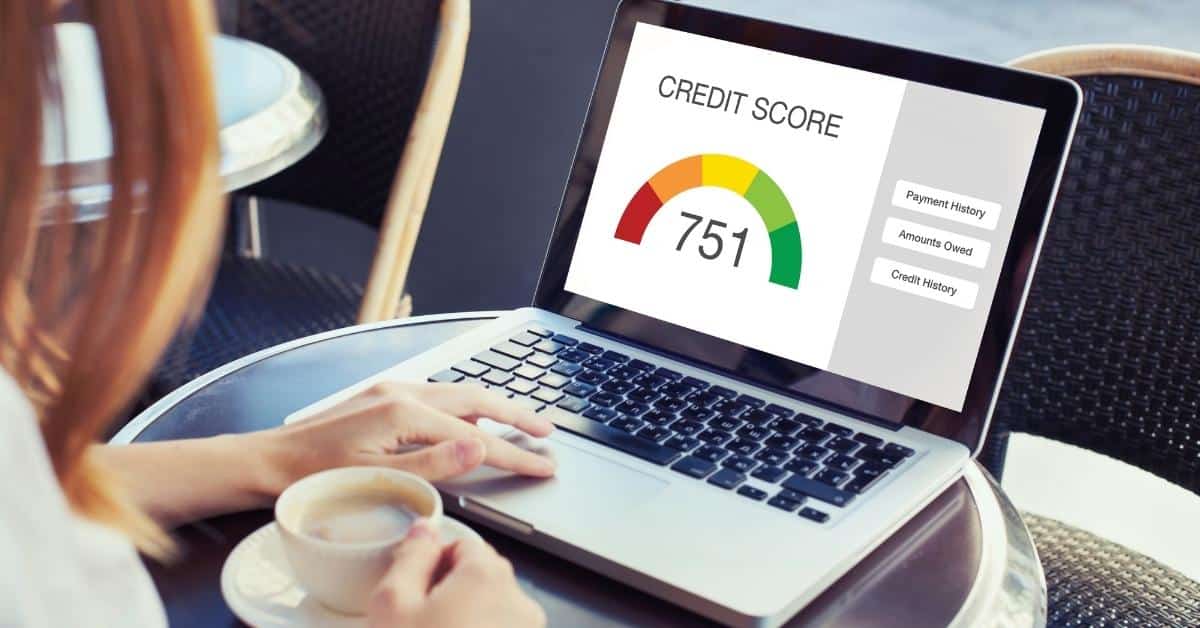
In general, though, you can expect that payment history and credit utilization, in that order, are the most important factors when it comes to the health of your credit score.
Sometimes, you don’t have a ton of time to wait around for your credit score to inch up over time. If you’re looking to see some real results right away, consider trying one of the following.
Are you eager to build your credit right away but you’re struggling with the fate of a limited credit history? Starting to build up credit from scratch can be frustrating and time-consuming. After all, you need to be given access to credit in order to build up your credit file, but lenders and creditors are wary of giving out lines of credit or loans to people with thin credit profiles.

One of the fastest ways to build your credit is to use an alternative data service. This is a way to add some positive information about your financial responsibility that usually don’t show up on your credit report.
This service allows users to include their utility and telecom bill payments in their credit reports, potentially raising their score by reflecting timely payments not typically considered in traditional credit scoring models. By leveraging such alternative data services, individuals can see an immediate uptick in their credit score by showcasing responsible payment behavior across various accounts.
Experian Boost can increase your score right away. However, if you choose to use a rent reporting service, how long it takes to see a change in your score depends on the service and your rental history.
It depends.
Using Experian Boost or rent reporting services might have a significant impact on your score or it might not change that much. If you already have a robust and healthy credit history, Experian Boost might not be as beneficial to you as it would be for someone with a thin, imperfect credit score.
One of the most impactful ways to improve your credit score is by reducing outstanding debt.
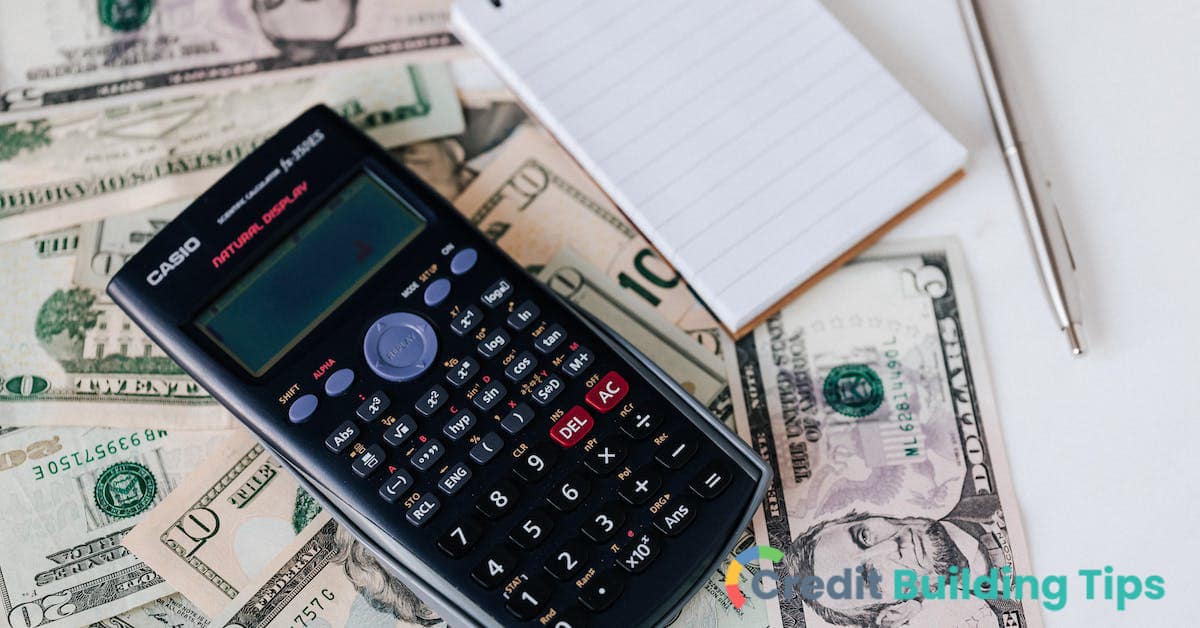
High credit utilization—the amount of credit used compared to the total credit available—can adversely affect your score. Focusing on paying down credit card balances and other outstanding debts can significantly boost your credit score by reducing this utilization ratio.
Reducing your balances by making payments can help you improve your credit very quickly.
You’ll have to wait for the lower balance to be reported to the credit reporting agencies, but once this information has been passed along you should see improvements in your score.
Paying down your debt and decreasing your credit utilization ratio is one of the most impactful things you can do to positively contribute to your credit score. Your credit utilization is the second most important factor for your score after making your payments on time.
Keeping your balances low is only one of the ways you can improve your credit utilization ratio. The other side of the equation is increasing your credit limit.
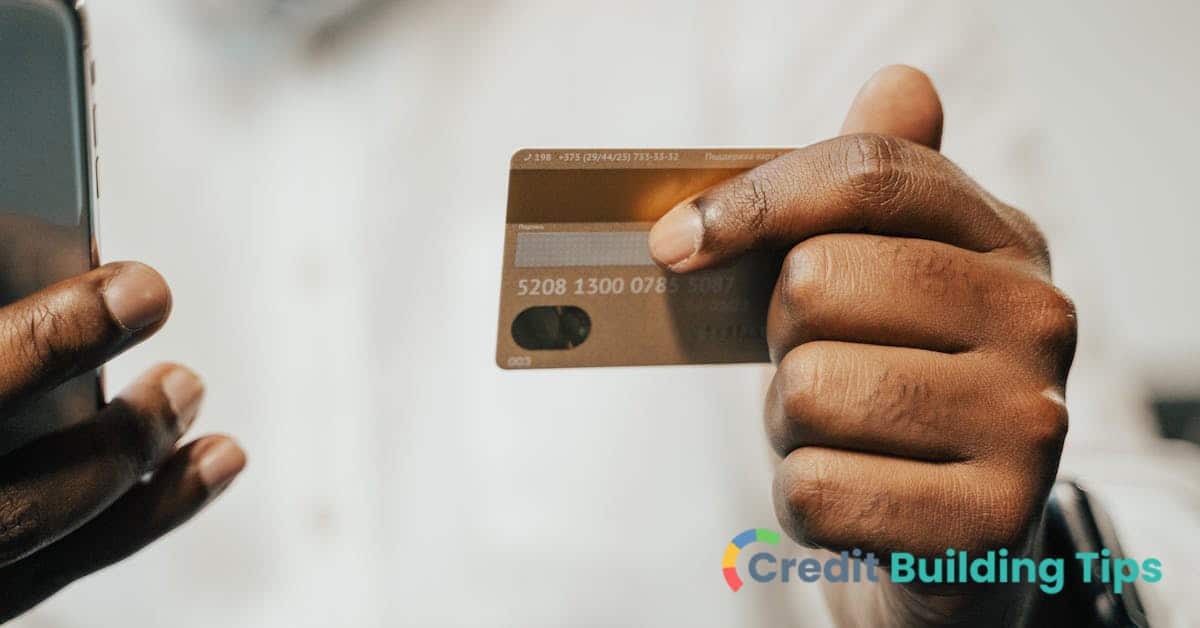
Requesting a credit limit increase can positively impact your credit score. If you have a good payment history and responsible credit usage, a higher credit limit can decrease your credit utilization ratio, potentially elevating your credit score. However, it's crucial to use this increase in limit responsibly and not accrue additional debt.
This is another really fast way to see a change in your credit score. As soon as the credit limit increase has been reported to the credit bureaus, your score will be updated to incorporate the new information.
Increasing your credit limit could actually have a pretty big impact on your credit score. However, how much benefit you see is going to depend on the current state of your credit profile.
For example, people with thin credit profiles will probably see a pretty big difference in their score once their limit is raised. Those with a much more established credit history, on the other hand, will likely see much benefit from a credit limit increase.
For those looking to establish or rebuild credit, secured credit cards offer a practical solution.
These cards require a cash deposit as collateral, which typically determines the credit limit. This means that if you put down $500 as a deposit, you’ll usually have a $500 credit limit.
By using a secured card responsibly—making timely payments and keeping balances low or at zero—you can demonstrate creditworthiness, which can translate into an improved credit score over time.
The extent to which a secured credit card will help your credit score depends on your existing credit profile. If you don’t have much credit or your credit is on the lower side, you’ll see more of an impact than if your credit score is already healthy.
Being added as an authorized user on someone else’s credit account can potentially boost your credit score, so long as the primary account holder’s credit history is positive.
This strategy allows you to benefit from another person’s responsible credit usage. At the same time, you’ll want to be cautious before using this strategy, as it won’t help your score if the primary account holder has a troubled credit history.
This is one of the fastest ways you can improve your credit score, assuming the person who added you to their account has a strong credit history. Once the credit account you’ve been added to is reported to the bureau, your credit score will reflect the new, positive information.
It’s possible that becoming an authorized user will have a significant impact on your credit score. However, how much it influences your score depends on your existing profile.
For instance, if you already have established credit but a bunch of derogatory marks on your report, you probably won’t see as much benefit as someone who has a thin credit file. Furthermore, the person who is adding you to their account needs to have a healthy credit profile themselves for it to contribute positively to your credit report and score.
While it might seem counterintuitive, addressing collections accounts can positively impact your credit score.
Negotiating with creditors or collection agencies to settle debts or establish payment plans can prevent further negative impacts on your credit report. Over time, as you address these accounts, their impact on your score diminishes.
Before you run out and make payments on that old collections account, though, it's a good idea to strategize. Just because a collections account falls of your credit report doesn't mean you aren't still legally responsible for repayment. At the same time, making a payment can restart the clock on how many years it will take for the derogatory mark to fall of your report.
Are you trying to get a collection account completely removed from your credit report? Make sure you check out my post about how to delete a collection in exchange for payment.
The answer to this question depends on a number of factors. Some credit scoring models don’t factor in paid collections when calculating your score. For these models, you’ll see a bump in your score as soon as your collections account is marked as paid off.
However, other models do incorporate collections accounts even once they are paid off. Furthermore, if you are disputing a collection account or asking the debt collector to delete the account, you probably won’t see any change for a few months.
How much your score changes after paying off collections is going to vary. Your credit score can be seriously damaged by having an account in collections. If you are able to get the debt collector to stop reporting the account, it could help your score quite a bit.
However, if the account continues to be reported, then the impact you’ll see will depend on the credit scoring model used. VantageScores and more recent FICO models don’t incorporate paid collections into their calculation, but older FICO models will still ding your score if there are paid collections accounts on your profile.
Regularly monitoring your credit report is fundamental to understanding your financial situation.

When you keep an eye on your credit report, you can detect and address any errors or discrepancies that might be negatively impacting your score.
You can use AnnualCreditReport.com to gain free access to your credit report from each of the three major credit bureaus. This is one of the most important things you can do to stay informed about your credit health.
When you notice an error on your credit report, you’ll want to dispute it with the credit bureaus or your creditor right away. When you make a dispute claim with the credit bureaus, they have thirty days to look into the situation and get back to you.
How much this impacts your score depends on the circumstance. If there’s a mark on your credit report saying that you missed payments when this isn’t the case, for example, you can see a big jump in your score.
While there are a number of ways you can increase your score relatively quickly, you might find that none of these solutions offer you much help. In general, it takes time to increase your credit score. If you are willing to put in the work to manage your credit, you can see your score improve over time.
The most important part of your credit score is your payment history. This means that making consistent and punctual payments is one of the best things you can do to keep your score healthy.
Late payments can significantly dent your score, so ensuring on-time payments for all credit cards, loans, and bills is crucial. Setting up automatic payments or reminders can help you stay on track and avoid unnecessary penalties or negative impacts on your credit report.
The second most important part of your credit score is your credit utilization ratio. This is the ratio of your credit card balances to your credit limits.
Keeping your balances low, ideally below 30% of your credit limit according to most experts, showcases that you are a responsible borrower. Paying off balances in full each month not only demonstrates financial discipline but also keeps your utilization rate low, positively impacting your credit score.
Though it’s not the most important factor when calculating your credit score, the length of your credit history matters in determining your creditworthiness.
Closing old accounts can shorten your credit history, which might lower your average account age and subsequently affect your score. Even if you're not actively using old credit accounts, keeping them open can contribute positively to the length of your credit history, benefiting your score in the long run.
A word of warning here, though: if you’re struggling with a spending problem, closing your old accounts might ultimately be the best strategy to avoid getting back into debt. Account age is important for your credit score, but staying out of spiraling debt is more important than having a perfect score.
Another thing you can do to build your score over time is work to diversify your credit portfolio.
At the same time, you don’t want to apply for too many new credit cards or loans at one time. When you do this, lenders can see all of the new hard inquiries on your profile. This can indicate to them that you’re strapped for cash and that you would struggle to pay back any money you borrow.
Assuming that you are applying for new credit in a reasonable way, though, having a mix of credit types can positively impact your score. This means having different types of accounts on your credit report, such as:
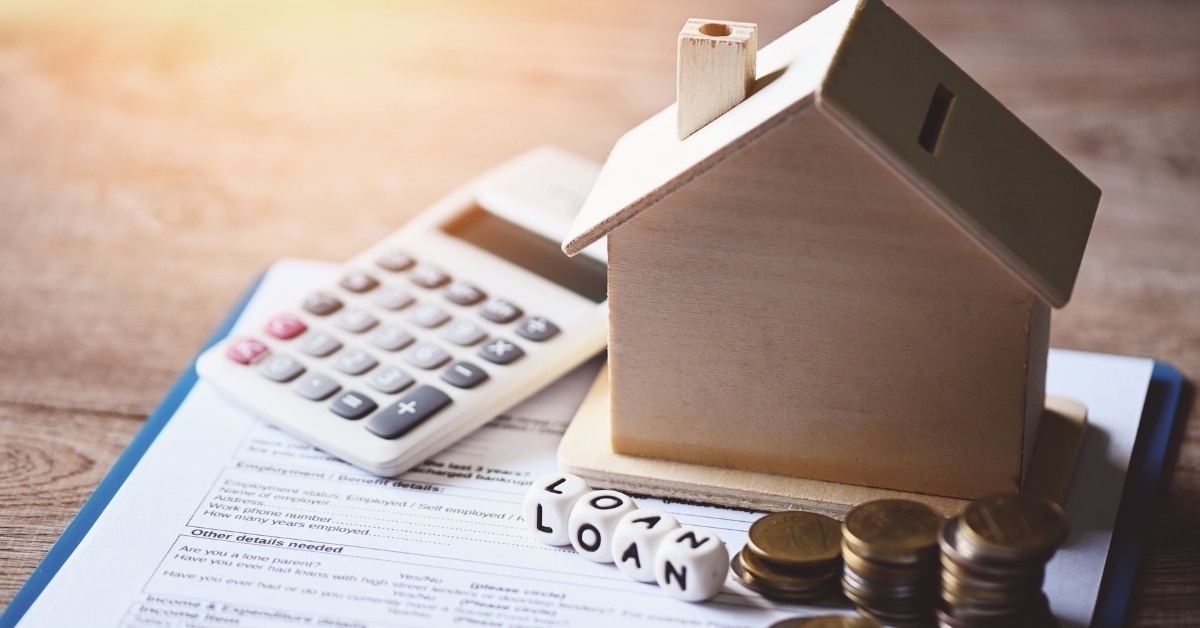
Responsible management of various credit accounts showcases your ability to handle different financial obligations, reflecting positively on your creditworthiness.
Building off of the previous point, it’s important to be careful not to apply for too much credit at one time.
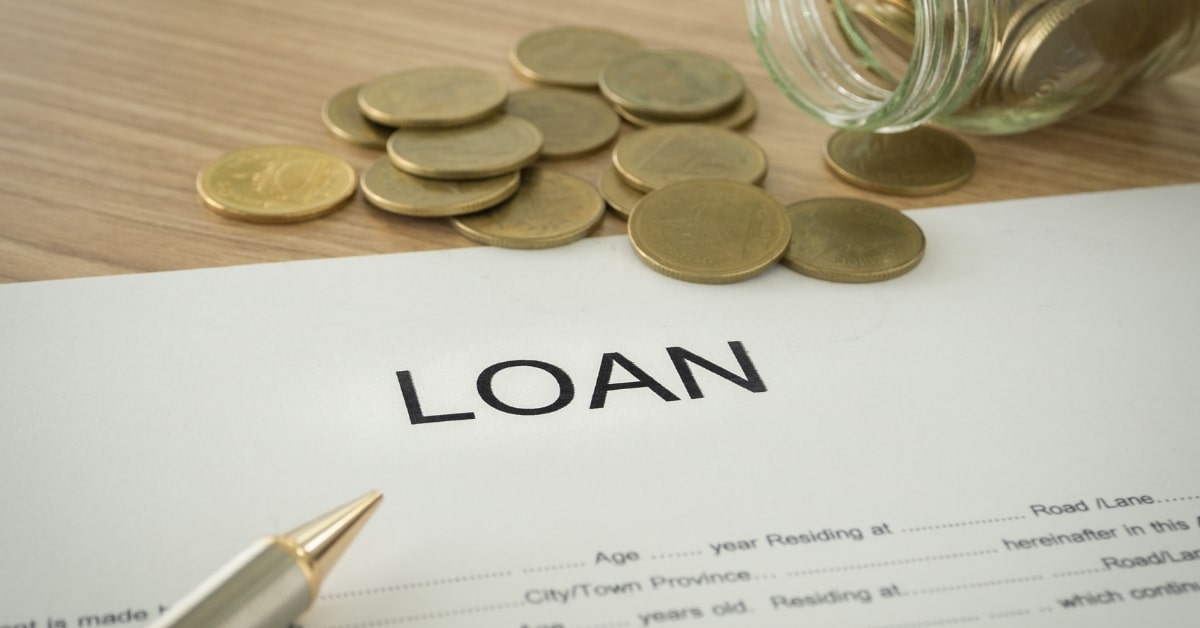
Each time you apply for new credit, a hard inquiry is made on your credit report, which can temporarily lower your score. Multiple inquiries within a short period might signal to lenders that you're in financial trouble or a higher-risk borrower, potentially impacting your score negatively. Being selective about new credit applications and spacing them out can help mitigate this impact.
Having a low credit score can have a big impact on your financial opportunities. As you work to build your credit, you might be wondering how possible it is to increase your score by 100 points relatively quickly.
The truth is, how much your credit score will improve using the tactics in this article is going to depend on the current state of your credit report.
If your score is poor right now, making positive changes can have a pretty big impact. The worse your score is, the more a small change will reflect in your score.
So, what builds your credit the most? The answer is that it depends on your current credit profile and financial situation. In general, though, there are a number of tactics available that you can use to have a positive impact relatively quickly.
Some of the things you can do if you want to have the biggest impact on your score include:
When you first start learning about credit scores and credit reports, the whole thing can feel pretty overwhelming. However, it’s worth overcoming the obstacles in your way and gaining a solid understanding of the system. The better your credit profile, the more financial opportunities will be open to you in your life.
Are you on a mission to improve your credit? Are you looking for practical advice regarding how you can build your credit over time? Make sure you check out the rest of our Credit Building Tips blog!
If you’ve been researching applying for a loan, you may have been disappointed to learn that higher interest rates in recent times have led to an increase in loan rejections. Having a cosigner or co-applicant can help increase the likelihood that you’ll be approved for a loan and can even improve the terms you’re offered.
When you choose the right cosigner or co-borrower, your own credit can even be improved as you work to build a positive payment history.
 At the same time, taking on a cosigner or co-applicant is a big decision. This isn’t something you’ll want to pursue lightly, both for the sake of your personal relationship with the other individual as well as your financial future.
At the same time, taking on a cosigner or co-applicant is a big decision. This isn’t something you’ll want to pursue lightly, both for the sake of your personal relationship with the other individual as well as your financial future.Let’s take a closer look at what you need to know about cosigners, co-applicants, and co-borrowers to ensure you have all of the most important information before moving forward with your application.
There are important distinctions to be made between the terms “co-borrower,” “cosigner,” and “co-applicant.” You’ll want to make sure you fully understand which type of agreement you are signing on for before putting your name to any loan agreement.

“Co-borrower” and “co-applicant” are often used interchangeably, though one could technically argue that co-applicant is the term used during the application process while co-borrower is the term used once the loan has been approved and funded.
Here is the bottom line:
When someone cosigns a loan, it means that they are adding their name, financial info, and credit history to the loan application of the primary borrower.

By doing this, they are agreeing to take on the legal responsibility of paying back the loan amount (and any extra fees) if the borrower isn’t able to keep up with the payments.
Co-signers provide a guarantee for a loan or lease but typically do not have an ownership interest in the financed item. They're responsible for the debt if the primary borrower or tenant fails to pay. Their primary role is to offer assurance to the lender or landlord regarding repayment but may not have any rights to the property or asset being financed.
Usually, a consumer will seek out a cosigner when they know they’re going to struggle to be approved for a loan based on their own financial information and credit profile.
A co-applicant on a loan is an additional individual that is taken into account when a loan is being underwritten and (hopefully) approved. It’s possible that having a co-applicant will help you improve the odds that you will be approved for a loan. Furthermore, you might be offered more favorable loan terms once the other person’s credit history and financial info are added to the pot.
Co-applicants apply for credit together and are equally responsible for repaying the debt if the loan is extended. They both have ownership rights or benefits from the loan or lease agreement. Both parties' incomes, assets, and credit histories are considered in the approval process. They share equal responsibility for making payments.
It’s important to understand that being a co-applicant (or a co-borrower, for that matter) is not the same as being a co-signer. Cosigners usually aren’t given access to any funds or have anything to do with any collateral related to the loan. Instead, they are just, essentially, back-up if the primary borrower can’t pay back what they owe.
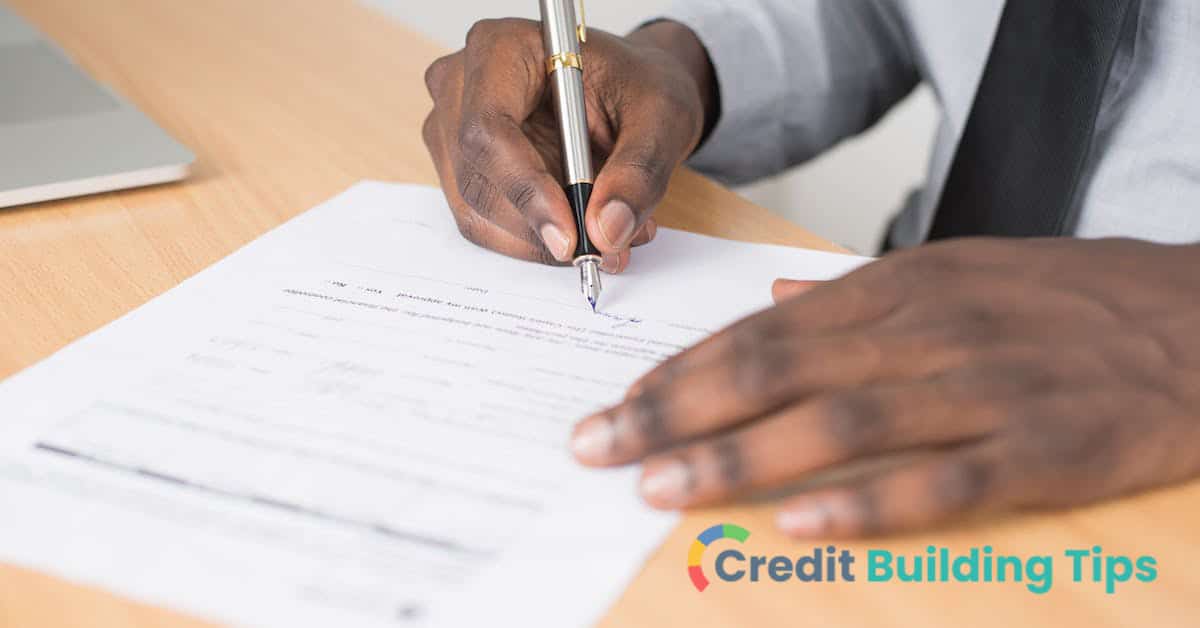
A co-applicant, on the other hand, is equally responsible for the repayment of the loan. For instance, if a husband and a wife apply for a mortgage, they would both be considered “co-applicants.” They both have to make sure they are making their mortgage payments on time, and both benefit from the loan. In this particular example, both spouses would end up being named on the title once the mortgage was fully paid off.
Co-borrower is, basically, another term for a co-applicant. Some people make the distinction that a co-applicant and a co-borrower are the same thing, except that they describe different moments in time in the loan process.
If co-applicants apply for a loan and are approved and funded, they become co-borrowers. With co-borrowers, both individuals' incomes and credit histories are considered in the approval process, and both are equally liable for the loan payments. Unlike co-signers, co-borrowers have an ownership interest in the property.
If someone is a co-borrower, it means that they have access to the loan funds in the same way that the primary borrower does. It also means that they have an equal amount of responsibility for repaying the loan as the primary borrower.
Having a co-signer or a co-applicant can potentially help you build credit. However, this isn’t necessarily a given– whether or not your credit improves, thanks to having another person sign their name to a loan, depends on whether you exhibit responsible habits as a borrower.
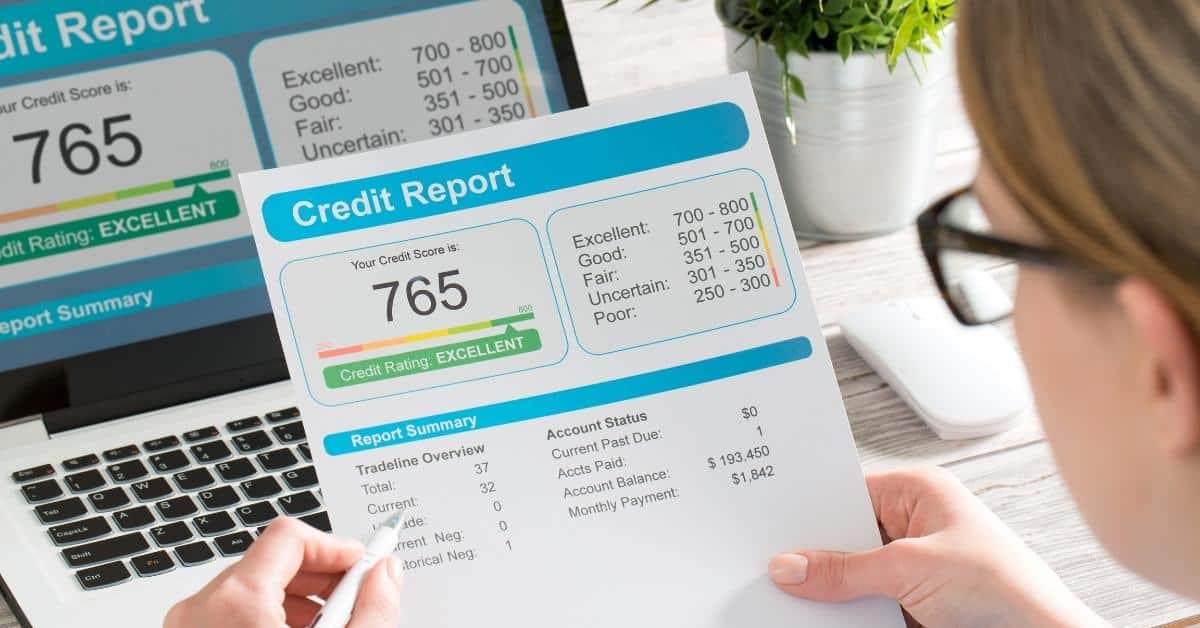
If you're the primary borrower and have a co-signer, the co-signer’s strong credit history and responsible financial behavior can positively influence your credit. Timely payments on the loan or lease can improve your credit score.
On the other hand, if you miss payments or default on a loan and you have a co-signer, it negatively affects not only your credit but also the co-signers credit score. Their credit is impacted just as yours is because they are equally responsible for the debt if you stop making payments.
If you have a co-applicant on a loan, both of your credit scores are impacted positively or negatively based on how the loan or lease is managed. Timely payments by both co-applicants can help build both individuals' credit histories, contributing positively to their credit scores. Conversely, missed payments or defaults adversely affect both co-applicants credit scores.
Taking out a loan is a big decision, and approaching someone to sign the paperwork alongside you isn’t something to take lightly. You’ll want to think about the impact it could have on both you and the individual you’re asking to sign on as a cosigner or co-borrower.
There are several reasons you might want to approach someone you know and trust to cosign a loan for you.
There are a number of advantages to having a cosigner, including:
On the other hand, having a co-signer isn’t all sunshine and roses.
There are some potential consequences you’ll want to think about before starting to hunt for the right cosigner, including:
You’ll definitely want to make sure you consider the potential impact on your relationship with your cosigner before choosing to go this route. Money has a way of causing strife in even the strongest of relationships, and you’ll want to make sure you have a clear understanding of how and when the loan will be repaid so that you and the cosigner are able to maintain a positive personal relationship during and after the repayment period.
It can be tempting to become a cosigner to help out someone you care about when they’re looking to gain access to a loan or line of credit. However, it’s extremely important you consider all of the potential implications of this before moving forward.
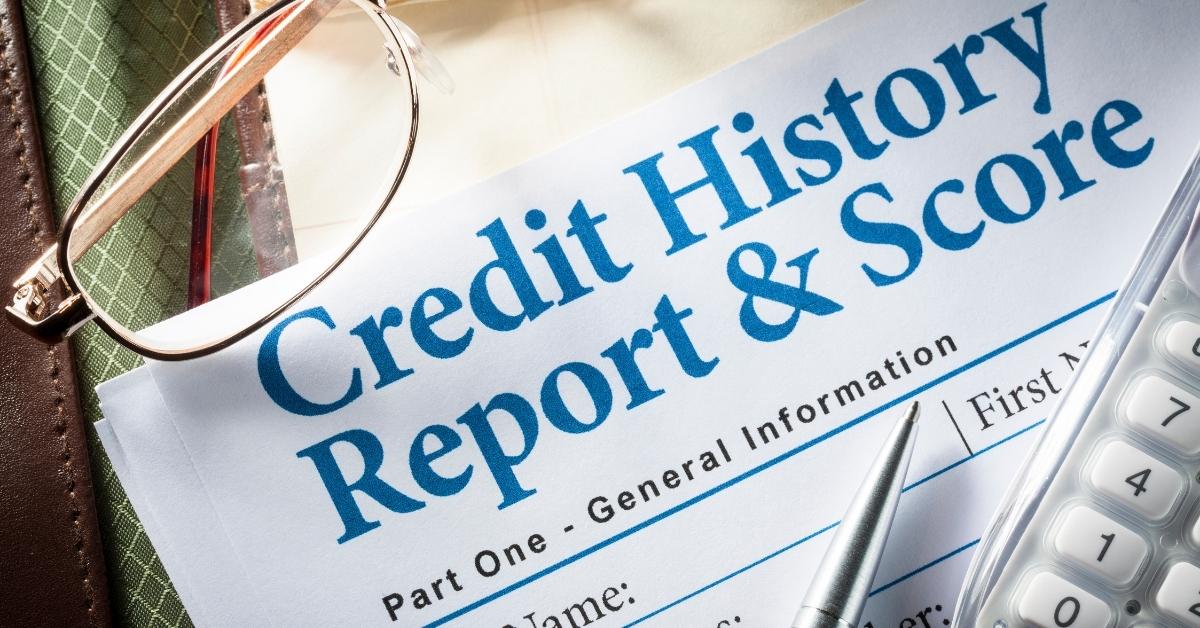
There are, of course, some obvious benefits to being a cosigner for someone else.
Here are some reasons you might choose to become a cosigner:
Some of the reasons you might not want to cosign a loan include:
If a co-signer doesn’t sound like the right thing for your situation, would a co-borrower or co-applicant be more applicable?
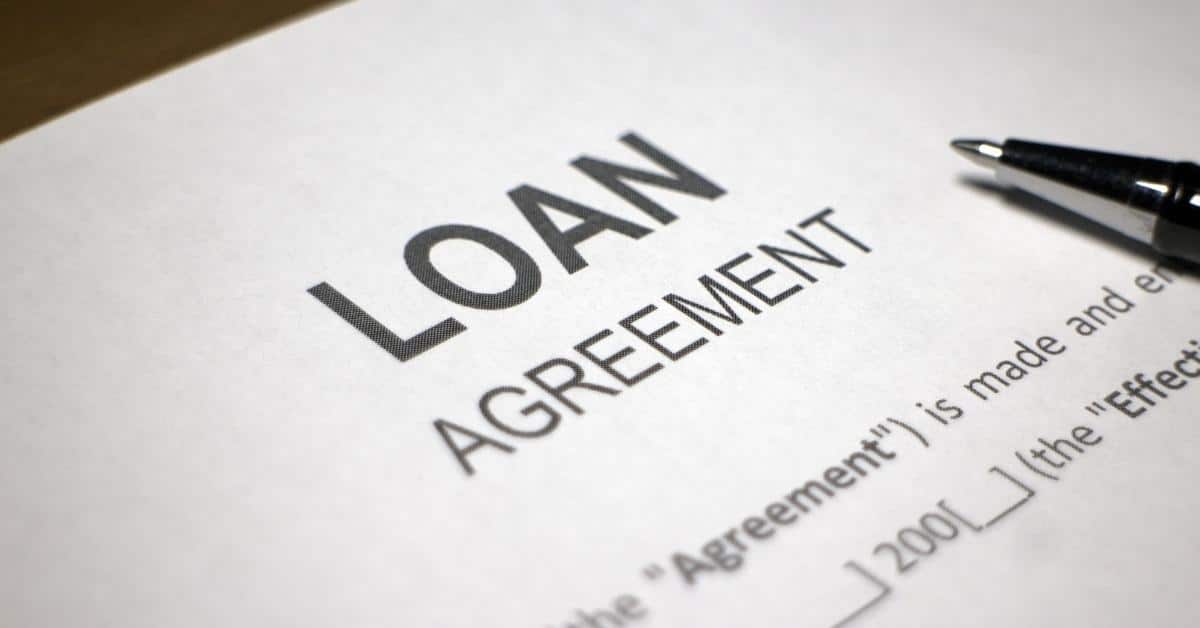
Some of the reasons you might want to apply for a loan with another individual include:
Of course, there are always two sides to every coin. Some of the potential downsides of having a co-borrower include:
Not everyone is going to need a cosigner for a loan. Whether or not having a cosigner could be worth the trouble is going to depend on your particular financial circumstances.
Here are some signs that a cosigner might be useful to you as you work to take out a loan or line of credit:
Finding the right cosigner isn’t a decision you’ll want to rush. Not only is a big decision for you because it impacts your ability to gain approval for a loan and affects the terms your offered, but being a cosigner can also have a big impact on the other individual’s financial life.
For this reason, you don’t want to go around asking everyone you run into whether they’ll cosign on a loan. Typically, cosigners will be parents, family members, close friends, or spouses. The less close you are to a person, the less likely it will be justifiable for them to take on the risk of cosigning your loan.
When you start contemplating who to ask to cosign your loan, you’ll want to keep the following factors in mind:
Finally, before I sign off, let's look at one more question that is frequently asked in relation to cosigning-- what's the difference between an authorized user and a cosigner?
In short, the key difference lies in the level of financial responsibility. An authorized user can use a credit account but isn't liable for payments, whereas a cosigner is legally responsible for repaying the debt if the primary borrower defaults.
Essentially, an authorized user is someone who has been given permission by the primary account holder to use a credit card or account. They have the privilege to make purchases but aren't legally responsible for the debt incurred. The primary account holder maintains responsibility for payments.
To help make the distinction a bit clearer, you might want to become an authorized user on someone else's account in order to improve your credit. On the other hand, you might search for a cosigner if you're looking to add the positive credit history of someone you trust to a loan application in order to improve approval odds or gain access to better loan terms.
Having a cosigner or a co-applicant is a great way to gain access to financial products you otherwise wouldn’t be approved for on your own. Furthermore, it can help you lock down better rates and terms on the loan. If you are able to make regular payments toward the loan after another individual helps you secure it, it can help you build credit through a positive payment history.
At the same time, taking on a cosigner or co-borrower isn’t something you want to take on flippantly. This is a serious financial responsibility that the other individual is agreeing to, so it’s important to make sure they understand what their legal obligations are by signing on to the loan.
Are you working to improve your financial future by improving your credit? If so, make sure you check out our Credit Building Tips blog for more articles and resources to help you on your credit-building journey!
In this post, we'll take a look at how Experian Credit Boost can help build your credit by adding a positive payment history for things like rent, utilities, and subscription streaming services.
The credit system can feel pretty frustrating sometimes-- a person can make regular, on-time payments for a big stack of bills and not receive any recognition for their responsible behavior. Services like Experian Boost can offer a leg up to people with thin credit profiles but years of making bill payments under their belt.
 Basically, Experian Boost is a way that you can build your credit history and potentially even instantaneously improve your credit score.
Basically, Experian Boost is a way that you can build your credit history and potentially even instantaneously improve your credit score.Let's take a look at exactly how this service works and whether it's right for you.
Experian Boost is an optional tool you can use to raise your FICO score instantly.
The way this program works is that it allows you to add your positive payment history for things that don't typically show up on your credit report, including rent, utilities, and even subscription streaming services.

Experian Boost is free to use and easy to opt out of if you change your mind. At the same time, you'll have to share your banking and account information with Experian in order to benefit from the service. Before you sign up, it's a good idea to think about whether this is something you feel comfortable with.
According to Experian, the average person that uses Experian Boost will raise their FICO 8 credit score by 13 points.
This credit-building tool can be useful for people who are looking to add a few more points to their credit score and potentially bump them into the next credit bracket.
In addition to helping you increase your credit score instantaneously, Experian Boost offers a number of other free features.
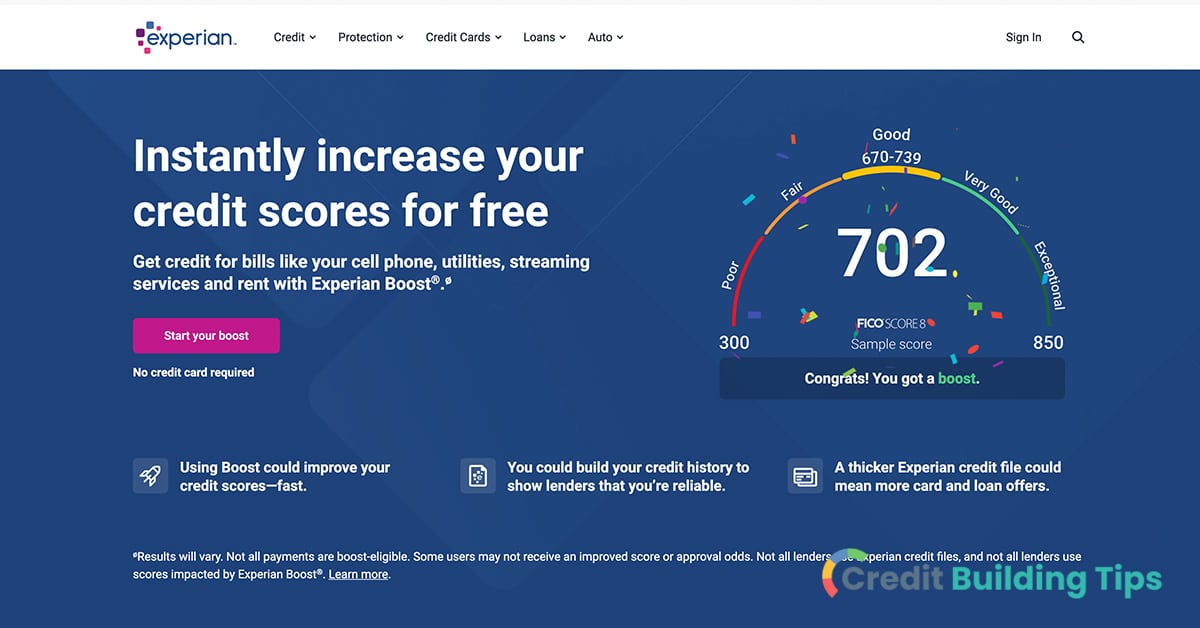
Here are some of the other things you can benefit from when you sign up for this program:
In order to use Experian Boost and gain the benefits of a credit score increase, you have to allow the program to scan your bank account transactions.
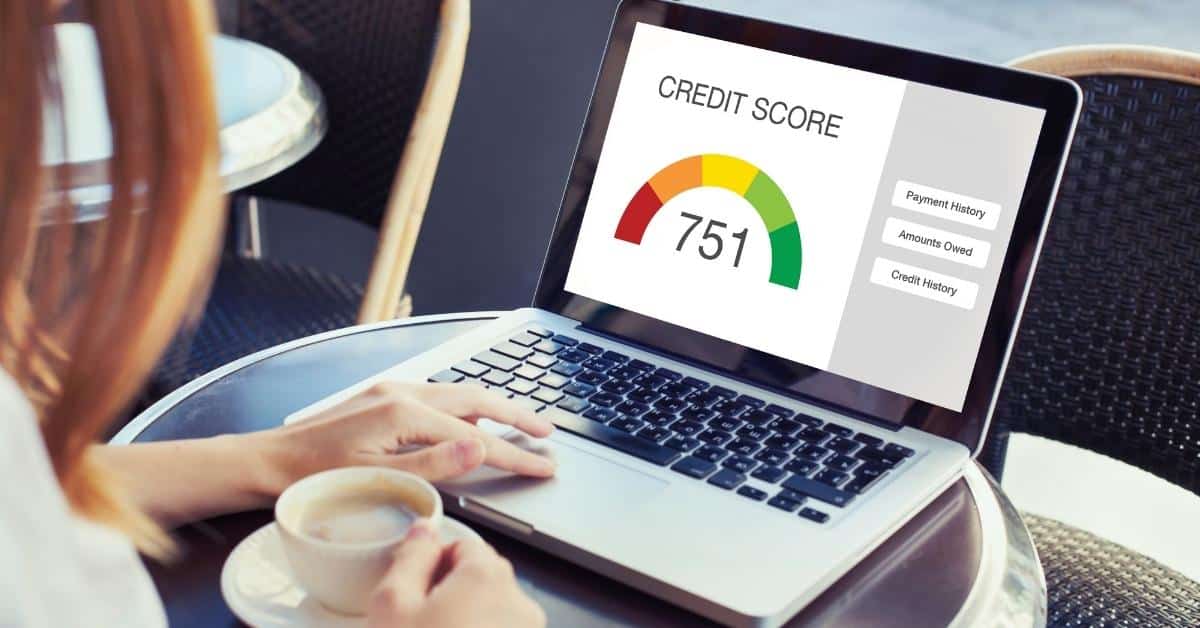
By looking at your bank account, Experian Boost will identify rental, cell phone, utility, and streaming payments. They will then include this information in your Experian credit report.
If you're worried that a few missed payments in the past make it so you're not a good candidate for Experian Boost, it's worth noting that they only count positive payment history. This means that missed or late payments for rent, utilities, cell phone service, or streaming services won't hurt your credit score.
The same is not true when it comes to the typical information that shows up on your credit report. If you miss a credit card payment by thirty days or more, for example, a negative mark will show up on your credit report. This will, in most cases, reduce your credit score.
By linking your utility, telecom, and bank accounts to the credit report generated based on your credit history by Experian, you can potentially raise your credit score.
In short, this is letting you get credit for your positive, on-time payments for things like rent, cell service, and utilities. You do have to have at least one active credit account in order to use the service, so it's, unfortunately, not useful to people who are trying to build a credit profile from scratch.
Only certain payments are eligible for Experian Boost, which include:
Your new credit score will be generated instantly once you sign up and link your bills. While it's possible you won't see a change in your credit score after going through this exercise, Experian says that your credit score won't go down when you utilize the service.
Will taking the time to sign up for Experian Boost and link your accounts will result in a higher credit score? The answer is: it depends.
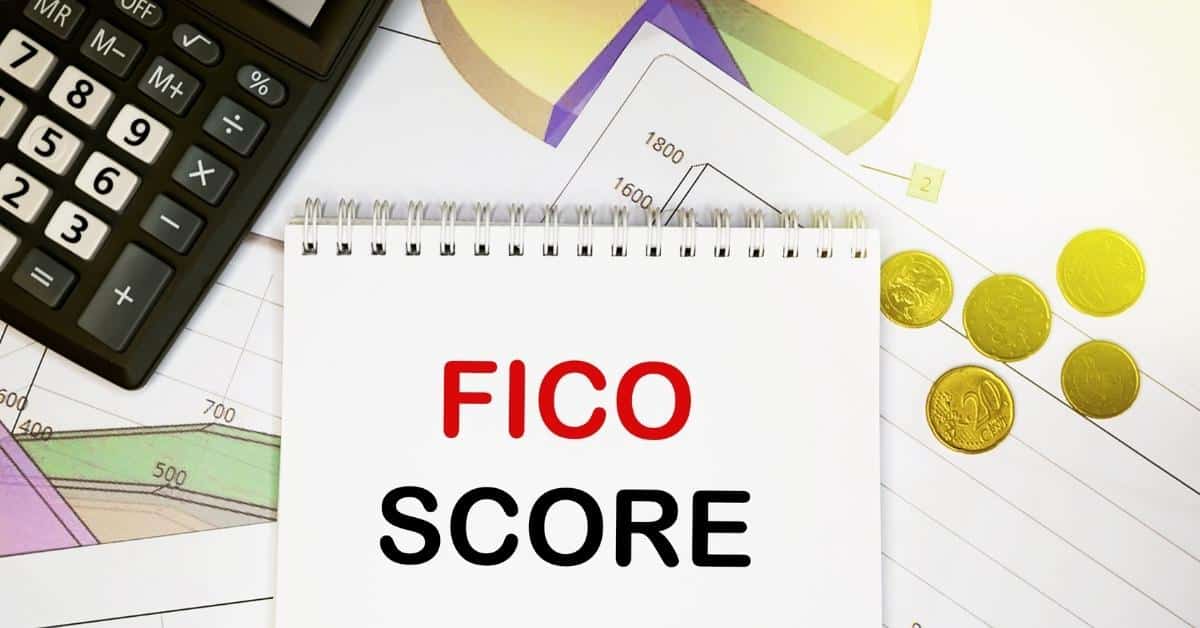
The first important point to make is that using Experian Boost only updates your Experian credit report with your positive payments. This means that if a lender looks at a credit score generated from TransUnion or Equifax, Experian Boost won't be much help.
That being said, Experian says that the most common versions of both the FICO score and VantageScore can be benefited by the service.
Experian Boost is typically most useful for people that don't have a very robust credit history-- i.e., people with a thin credit profile or less than five accounts on their credit report.
The second point is that whether Experian Boost increases your score is going to depend on your particular circumstances.
On the other hand, people who have thin credit profiles might notice a bigger boost when using this program. As a final point, it's important to note that not all payments are eligible for Experian Boost.
The good news about Experian Boost is that, if it does have a positive impact on your score, it will happen in just a few minutes. The sign-up process is relatively simple, and your FICO score will generate quickly after you connect your accounts to your credit file.
To sign up for Experian Boost, you'll start by going to their sign-up page to create a free Experian account.
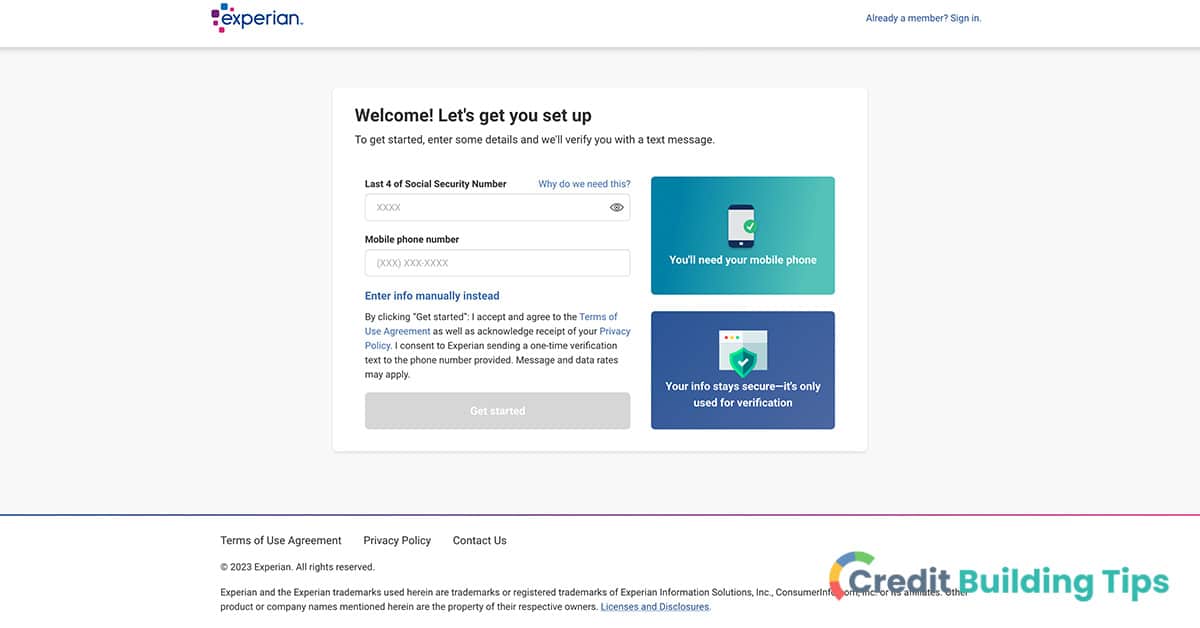
From there, you'll follow these steps:
That's it! If you want to take any of your accounts off at a later date, you'll want to sign into your account and navigate to the field titled "Connected Accounts." You can then click "disconnect" for the account you no longer want to show up on your Experian credit file.
Whenever you're signing up for a new service and entering personal information, it's important to understand the pros and cons.
Let's look at some of the things you'll want to know about Experian Boost before you start linking your accounts.
If a lender is using TransUnion or Equifax to generate your credit scores, you're not going to gain any benefit from Experian Boost. For people who are looking to use the service to boost their score before applying for a mortgage or a new credit card, it's important to understand that Experian Boost might not help depending on the credit report a creditor or lender is using.
When you sign up for Experian Boost, you have to link your bank account. This is how they are able to verify that you have made payments on time and add them as tradelines to your credit file.
However, it isn't Experian itself thumbing through your bank statements. They use an intermediary company called Finicity to accomplish this aspect of the process. Before you sign up, it's a good idea to think about whether you feel comfortable letting another company go through your bank account and have access to so much personal information.
If you have excellent credit and a robust credit history, Experian Boost probably isn't worth your time or energy. Even if it does increase your score, five points probably won't offer much in the way of benefits to people with a score of 760 or higher.
Another important thing to consider is that Experian Boost only works with newer versions of the FICO score. Considering that mortgage lenders still generally use older FICO score models, this can mean that it's not worth the effort if your primary purpose is increasing your score before buying a house.
Finally, you'll lose any benefits you gain if you end up opting out of the program. Any extra points you enjoyed will disappear if you aren't actively enrolled.
If you like the idea of Experian Boost but it doesn't quite help you achieve your goals, there are some other options out there. Primarily, you can sign up for another third-party service that helps you boost your score, or you can work to build credit the old-fashioned way.
There are a number of other third-party services on the market that offer similar perks as Experian Boost.
Here are some others you can look into:
Building credit is something anyone can do, but it often takes a bit of time and persistence.
There are a number of things you can do to help increase your scores over time. Here are some crucial steps you can take if you're interested in raising your credit score but don't want to use one of these credit score-boosting services:
Searching for more answers about using Experian Boost? Let's take a look at some of the most frequently asked questions about this credit-building tool.
Experian states that they use bank-level SSL security encryption so that your data is secure and safe. Of course, you are always taking some level of risk when you enter personal and financial information online.
Here are a few tips to ensure you aren't doing more harm than good when using a service like Experian Boost:
If you hand your landlord an envelope of cash on the first of every month, you're not going to be able to benefit from your on-time rent payments through Experian Boost. The same is true if you use a mobile payment transfer app (think Zelle, PayPal, or Venmo), a personal check, or a money order.
In order to have an Experian Boost and benefit from this service, you need to meet the minimum FICO requirements. These are:
If you meet these requirements, then you can use Experian Boost to get your FICO Score.
UltraFICO is another popular service for boosting consumer credit scores, particularly for those who have thin credit files.

This can be useful for people who don't have a FICO score at all or who have a low FICO score. Like Experian Boost, this process works by having you share banking data from your checking, savings, and money market accounts.
By scanning your bank accounts, a number of pieces of information will be collected in order to potentially boost your score, including:
UltraFICO doesn't actually add this information to your credit report. What it does instead is contribute to the calculation of your FICO scores. Since Experian Boost and UltraFICO work in different ways, you can actually use both to help give lenders more information about your creditworthiness.
According to Experian, most people who use their Boost service increase their credit scores instantly.
The people who will benefit the most are those who either:
Only the newer credit scoring models are impacted by the additional information contributed to your report by Experian Boost. This means that the following scoring models can be improved using this service:
If you're looking to add a few points to credit scores generated from your Experian credit report, Experian Boost can be a very useful tool. By letting you add positive payment histories for things like rent, utilities, and streaming services, you might be able to snag a few more points and even get bumped up into the next credit bracket.
At the same time, Experian Boost might not be the right choice for everyone. Those who have robust, long credit histories might not see much benefit from adding their on-time payments using this service. Furthermore, some consumers might not love the idea that they have to give access to their bank accounts to an intermediary service in order to participate.
Whether or not Experian Boost is the right choice for you, taking the time to determine the best way to achieve and maintain a healthy credit score is well worth the effort. Your credit score can have a very real impact on your life, affecting your ability to take out credit lines, buy a house, rent an apartment, and much more.
Are you interested in learning more about how you can improve your credit? Are you searching for more resources to help you become more financially literate? Make sure you check out our Credit Building Tips blog for more useful articles and guides!
When you want to take out a loan or get a new credit card, lenders will look at your credit history to determine your creditworthiness. If you have a thin or non-existent credit history, you might be wondering how you can build a credit history faster than usual.
The best way to think of your credit history is as a record of all of your credit activity. This includes how many credit accounts you have, whether you have a history of on-time payments, and how much debt you have. Additionally, one of the factors that influences your credit score is the age of your credit accounts.
 If you're trying to beat the calendar and build credit history faster than is typical, there are two primary things you can do: become an authorized user on an old, well-established account or use a third-party service to add on-time rent and utilities to your credit report.
If you're trying to beat the calendar and build credit history faster than is typical, there are two primary things you can do: become an authorized user on an old, well-established account or use a third-party service to add on-time rent and utilities to your credit report.When neither of these is an option, and you have a thin credit profile, you might consider applying for a secured card, a credit builder loan, or a store credit card. In this article, we'll look at what you need to know about building your credit history to help you achieve your financial goals.
Your credit history is the record of how you have managed your finances and debt over time. Essentially, this is an account of how able you have been to repay the debts you have. This shows up on your credit report, which recounts the number and types of credit accounts you have held.

The following information is recorded in your credit report about your credit accounts:
Credit reports also include information about any collections, liens, judgments, or bankruptcies.
All consumers can access their own credit history through their credit reports. Typically, you can receive a free credit report from all three of the credit reporting agencies through AnnualCreditReport.com once a year. However, due to the economic uncertainty that resulted from the pandemic, consumers can access free credit reports weekly through December 2023.
Your credit history is important because potential creditors will use this information to determine whether they are willing to extend credit to you. This includes creditors such as credit card issuers and mortgage lenders.

Beyond that, the information in your credit history is also used to determine your credit scores. Here are some of the situations where your credit history might come into play:
If you have a good credit history, it means that you have demonstrated that you routinely pay your bills on time and are not saddled with large amounts of debt. To potential creditors, a good credit history means that you are a lower-risk borrower.
Having a good credit history means you have a history of making on-time payments and maintaining low debt balances.
This means that it's easy to be approved when you apply for loans. On top of that, it means you'll be offered lower interest rates for the loans and credit you're approved for.
On the other hand, having a bad credit history means that you are carrying a lot of outstanding debt and don't regularly pay your bills on time.
Having a bad credit history means having a history of missed or late payments, carrying large balances, or struggling with significant financial events like bankruptcies, collections, or liens.
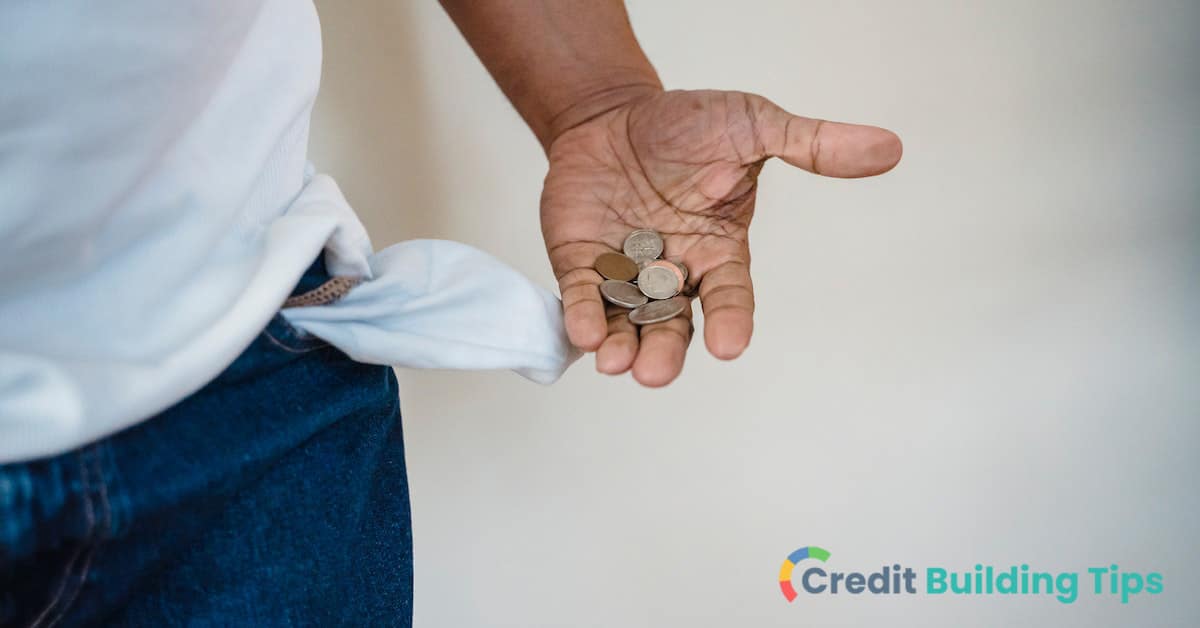
There are a number of different factors that can contribute to a bad credit history. These include:
When you have a bad credit history, it can make it hard to be approved for credit cards or take out loans. Beyond that, the loans and cards you are offered will typically mean dealing with high-interest rates. If your credit history doesn't show you have been a responsible borrower, it can also mean that you have to pay security deposits for things like car rentals, apartments, and cell phones. To make matters even worse, you'll also find your car insurance premiums are higher than if you have a good credit history.
Even if you have been exceptionally financially responsible for your entire life, having a short or nonexistent credit history can make it very difficult to qualify for loans or lines of credit.
This is because your credit history is an important part of how lenders can trust that you are a responsible borrower. When your credit history is brief or doesn't exist at all, lenders don't have as much information as they typically want to make a decision about loaning you money.
The length of time that the accounts on your credit reports have been open is one of the factors that impact your credit scores. You can check the length of your credit history by taking a look at your credit report.
The length of your credit history is worth about 20% of your VantageScore credit score and 15% of your FICO Score credit score.
There are three primary factors that go into calculating the length of credit history category within your FICO credit score:
The older your credit history is, the better when it comes to your credit score.
When lenders are reviewing loan applications, they'll take a close look at your credit history. The longer your credit history is, the lower risk you appear as a borrower, so long as that history displays on-time payments and responsible credit usage.
Beyond using your credit history to determine whether or not to approve your application, lenders use your credit history for two purposes:
As mentioned above, your credit history can also be used by employers, insurance companies, landlords, and utility companies to make a more informed decision about you.
According to a study from FICO, one of the major credit scoring model companies, people who have exceptional credit scores (think 800 or higher) have an average credit age of a little over ten and a half years.
That being said, you don't need to have had credit accounts open for more than a decade to have good credit. You can receive a FICO credit score once you have at least one credit account on your credit report for roughly six months. During this period, the payment history needs to have been updated at least once to be eligible for a FICO score.
For a VantageScore credit score, your account might only need to be on your credit report for a month or two in order to qualify.
It's worth noting, though, that other information can have a bigger impact on your credit score than simply having a thin credit file or a young credit report. For this reason, the biggest priority should be avoiding missed or late payments and keeping a low balance on your cards in relation to your credit limit.
Most people simply exert some patience when it comes to building credit history. As they continue to make payments on time and keep their accounts in good standing, the average age of their credit will typically start increasing over time.
However, if you're motivated to build a credit history faster than is typical, there are a few things you can do. These include:
Let's take a closer look at why each of these steps can help you build credit history faster than usual.
In a recent post, I discussed at length how you can build credit by becoming an authorized user on someone else's account. If you have a thin or non-existent credit history, this can really give you a leg up when it comes to the length of credit history used to calculate your credit score.
There are a few things to keep in mind before you run out looking for someone to add you as an authorized user, though.
First of all, you want to make sure that the credit card issuer actually reports authorized users to the credit bureaus and not just the primary account holder. If they don't also report authorized users, being added to their account won't do your credit report any good.
Secondly, you'll want to be very certain that the rest of the account's credit history is positive before you're added as an authorized user. In particular, you should verify that the payment history and credit utilization on the account are positive before becoming an authorized user.
Another tactic you can use to increase the length of your credit history faster than usual is to add alternative data to your credit report.
Your credit report often won't display things like mobile phone bills, rent payments, or utility bills. If you haven't had a credit card or taken out any loans, this can mean that you have little to no credit history even though you've been responsibly paying bills for years.
In order to potentially add years to your credit history, you might consider using a third-party service that will add eligible accounts to one or more of your credit reports if you are adding eligible accounts. That has been open for several years. This can give you a real leg up when it comes to increasing the length of your credit history.
If you want to add your rent to your credit report, here are some of the paid third-party services you can use:
All of the above services can be initiated by renters.
There are additional services that can be used if property managers or landlords are willing to opt in. In some cases, renters might actually be enrolled automatically when they rent a new place. If you're currently moving, you can ask your new landlord whether or not they use any of the following services, many of which are typically free for renters:
Utility providers usually aren't required to report payment histories to the three primary credit bureaus in most states. This means that you will usually only see a utility account on your credit report if the account is delinquent.
There are a number of reasons that utility companies are disincentivized from reporting to the credit bureaus, with the two primary reasons being:
If you want your history of on-time utility payments to contribute to your credit history, there are a few services you can use:
Closing a credit card can end up damaging your credit for two primary reasons:
At the same time, it's important not to blindly follow the commonly spouted advice that you shouldn't ever close your credit accounts.
There are several very good reasons why you might want to close an account that might outweigh the negatives, including:
All that being said if the only reason you're considering closing an account is that you don't particularly need it, stop and think about whether or not you should keep it open for the sake of your credit history.
On top of being wary of closing old accounts, you also want to be thoughtful before opening a new account. The reason for this is that it can reduce the average age of your credit.
Of course, credit age is only one of many factors that impact your credit score. If you are primarily concerned with increasing your credit, it's possible that opening a new account will ultimately help more than it hurts by increasing your total credit limit and reducing your credit utilization ratio. It's worth noting, though, that the hard pull the creditor will run when approving you for a new card can temporarily reduce your credit score.
Starting from scratch with credit can feel pretty frustrating. On the one hand, you need credit accounts in order to build credit. On the other, lenders and creditors likely won't extend credit to you or offer you loans when you don't have a credit history.
Luckily, there are a number of things you can do to break free from this conundrum. Here are some options:
If you're just opening your first credit card account right now, it can be frustrating to realize just how long it takes to build good credit history. However, there are a few things you can do to increase the age of your credit accounts on your credit reports. The two primary things you can do are:
If neither of these are options and you have yet to establish any credit, here are some things you can do to start building credit in addition to becoming an authorized user or adding rent and utilities to your report:
Are you working to boost your financial literacy and ensure your credit allows you as many opportunities as possible down the road? Make sure you check out our Credit Building Tips blog for more useful resources.
Working to increase your credit score is a worthwhile endeavor-- it makes it easier and cheaper to borrow money, helps you achieve low insurance rates, and can even impact your ability to rent an apartment or get a job. In this article, we'll look at whether American Express helps build your credit score any more than other credit card issuers.
American Express is unique in that it is the only major issuer that still offers financial products that are similar to charge cards. Charge cards aren't identical to credit cards and, therefore, can impact your credit scores in a different way.
 Credit cards are a great way to build credit and increase your credit score when you use them responsibly. Whether you use an American Express credit card or a charge card, it's worth understanding how you can use them to build a strong, healthy credit profile.
Credit cards are a great way to build credit and increase your credit score when you use them responsibly. Whether you use an American Express credit card or a charge card, it's worth understanding how you can use them to build a strong, healthy credit profile.Let's dive in and take a look at what you need to know about building your credit score using American Express charges or credit cards.
American Express is a credit card company that issues both traditional credit cards as well as charge cards to consumers. If you are considering applying for an Amex card, it's worth understanding that these two financial products are not identical.
Traditional charge cards have no preset spending limit and require that you pay off the balance in full every month. This is opposed to traditional credit cards, which have a credit limit and allow you to carry a balance from month to month at the cost of being charged interest.
American Express is the only major card issuer that still offers charge cards to consumers.
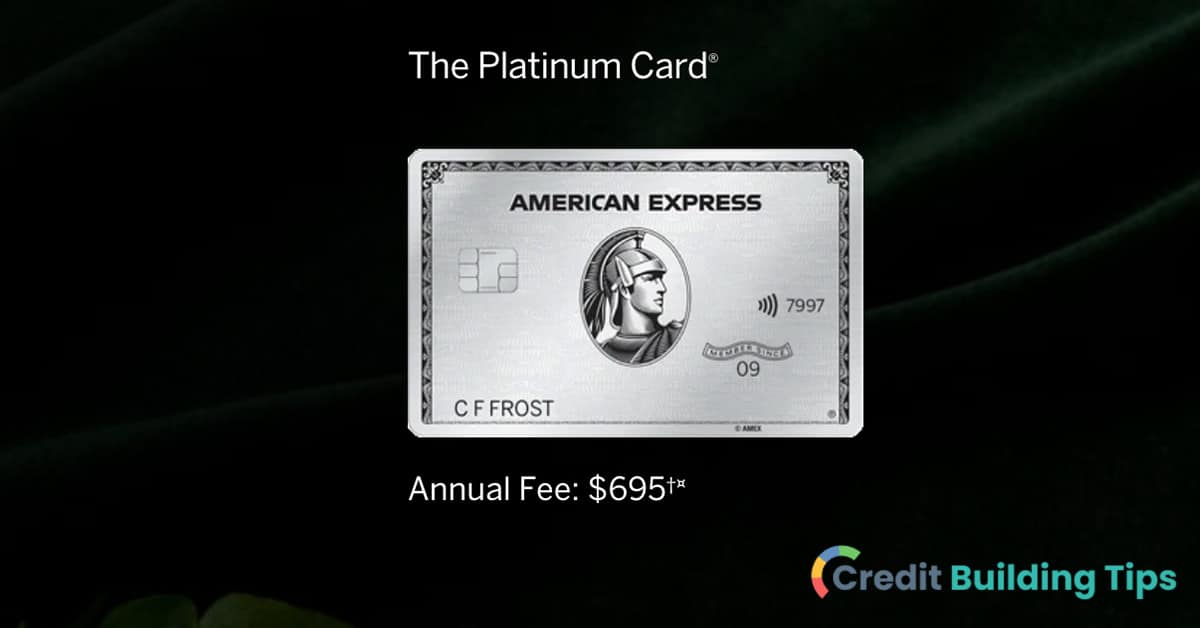
That being said, the concept has evolved over time in order to allow some customers to "Pay Over Time" for eligible purchases.
Some of the charge cards offered by Amex include:
There are also a few retailers that offer charge cards, most of which are chain gasoline companies. With these cards, you can only make purchases within the brand. Though they are similar to charge cards in some ways, many will allow consumers to carry a balance on the card. There are also some charge card options for small businesses, including the Capital One Spark Cash Plus.
You can build credit using both credit cards and charge cards. However, their different structures mean they don't impact your credit in the same way.
A credit card issuer, including American Express, will check your credit when you apply for either a charge card or a credit card. They won't just do a soft pull of your credit-- they will run a hard inquiry.
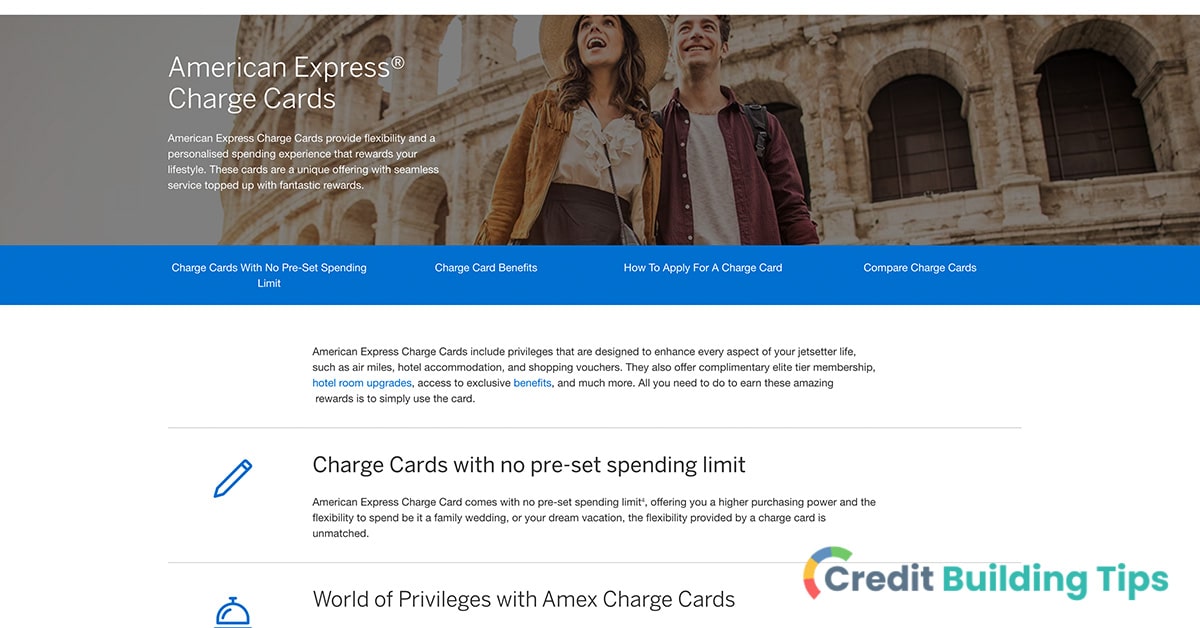
Unlike soft inquiries, hard inquiries will be viewable by those who pull your credit report for up to two years. Though this can have a slight negative impact on your credit score, the effect is usually minor and diminishes over time.
One major factor that impacts your credit score is your credit utilization ratio. This is a metric that compares how much available credit you have to how much credit you are using at a given time.
When you use a credit card, your credit utilization rate will be determined by comparing the statement balance of your account at the time of reporting to your preset credit limit. The lower your credit utilization rate is, the better, as it shows lenders and creditors that you are a responsible borrower.
Since charge cards don't have a credit limit in the same way credit cards do, it makes it very difficult to determine a credit utilization ratio. The two major credit scoring models, VantageScore and FICO, don't incorporate charge card accounts when they are calculating your credit utilization. Some older scoring models, however, will still account for charge cards when running this calculation.
You can work to build a strong credit profile by making on-time payments for both credit cards and charge cards.
With credit cards, you only have to make the minimum monthly payment in order to have your payments reflected positively on your credit report. Of course, if you only pay the minimum monthly payment, you will incur interest charges unless you are still in the promotional introductory period for a 0% APR card.
With traditional charge cards, however, you are required to pay the balance in full every month. That being said, some Amex charge cards will allow you to pay overtime for eligible products, making them more like a hybrid between a charge card and a credit card.
If you fail to make a payment by more than 30 days, it will show up as a late payment mark on your credit report. This can remain on your credit file for seven years. Payment history is a significant part of your credit score, which is why it is important to make payments on time every month.
American Express issues plenty of traditional credit card options, but they are unique in being the only major issuer that still offers charge cards to consumers.
These cards also tend to come with a bunch of perks, potentially including things like:
If you're considering one of the American Express financial tools that have features similar to charge cards, it's worth understanding how they can impact your credit.
Oftentimes, you'll hear the words "credit card" and "charge card" used interchangeably. The truth is, though, there are some distinct differences between the two that are worth understanding.
When you're making a purchase, charge cards and credit cards work exactly the same way. Merchants won't need a special card reader to process your payment when you use a charge card, nor will you struggle to use your charge card online.
There are two significant differences between charge cards and credit cards that are important to understand:
If you don't pay off the full balance of your charge card every month, it can have a number of potential consequences, including:
Charge cards will usually have a substantial annual fee. The reason for this is that the issuer doesn't make any money off the interest because cardholders are expected to pay the balance in full each month.
There are a number of different factors that charge cards can impact that influence your credit scores.
These include:
However, they won't be factored into your credit utilization rate by FICO or VantageScore because they don't have a preset spending limit.
What this means is that charge cards do not have as significant an impact on your credit score as credit cards do.
This can be either a good thing or a bad thing, depending on what your needs are. Spending a big chunk of money using a charge card won't likely have as much of a negative impact on your credit scores as if you spent the same money on a credit card. On the other hand, you won't benefit from spending little on a charge card because it's not factored into your credit utilization.
Charge cards will usually have a lesser impact on your credit score than credit cards. This is because your credit utilization ratio is a major factor that influences your credit score. Without a preset spending limit, charge cards don't count toward this metric.
You can use both credit cards and charge cards to build credit. If you maintain low balances, though, a credit card will have a greater positive impact on your credit score than a charge card.
That being said, your payment history is the most important factor when it comes to your credit scores. Just because charge cards have a lesser effect than credit cards, it doesn't mean they have no effect at all. Making charge card payments on time will help your credit score, just like it will positively impact your score to make credit card payments on time.
Both credit cards and charge cards can help you increase your credit score if you use them responsibly. American Express is one of the major card issuers in the U.S., and using one of their cards can certainly help you build credit if you make payments on time and maintain a low balance.
That being said, you shouldn't expect to build credit with an American Express credit card any faster than with a card from another issuer. Credit cards, in general, are a very useful tool for building credit.
The reason that credit cards can help you build credit is that they will typically report the activity on your account to the three major credit bureaus.
These national credit bureaus-- Equifax, Experian, and TransUnion-- use the information that credit card companies report to create your credit reports. Your credit reports are the resources that are used to calculate your credit scores.
Opening a credit card or becoming an authorized user are both ways you can start building credit with a credit card. If you have a thin credit profile and don't have the option to become an authorized user, there are a few options to help you start building credit with a card:
How you use your credit card will be an essential factor in how it impacts your credit. The most important things when it comes to responsible credit card usage are:
Your payment history is the most important factor when it comes to calculating your credit scores. Every month, you will want to make sure you make at least your minimum payment on time.
If you don't pay your credit card bill on time, you will most likely be charged a late fee. If your card has a promotional interest rate or an introductory rate, you'll probably lose this privilege when you miss a payment date. If you miss the payment by 30 days or more, you'll start racking up negative marks on your credit profile that damage your credit scores.
It can be hard to remember to pay credit card bills on time, and even one slip-up can be costly for your credit and for your wallet. For this reason, the best thing to do is to set up autopay on your account so that the minimum monthly payment is at least always covered. Of course, you'll need to make sure there are sufficient funds in your linked account to ensure the payment goes through.
Though making the minimum monthly payment is essential, it's ultimately best to pay as much of your balance as you can every month. Otherwise, interest charges will start stacking up, and you'll struggle to keep your utilization rate low.
As mentioned earlier, your credit utilization is the balance on your credit card relative to the credit limit on the card. This is another significant factor used to calculate your credit scores.
When it comes to your credit utilization ratio, experts suggest you keep it under 30%. However, lower is always better when it comes to credit utilization. For the best possible credit scores, try to keep it under 10%.
You want to keep your credit utilization ratio as low as possible for the sake of your credit score. Maintaining a low balance is how you can achieve this. Of course, how low you need to keep your balance has to do with what your credit limit is. Using $500 of credit for a card with a $ 1,000 credit limit is a very different story than using the same amount of credit on a card with a $10,000 credit limit, for example.
If you want to keep your reported balance low for your credit score, you'll want to make your credit card payments before your statement period ends. Usually, it's advised that you pay the balance 21 to 25 days before the due date on the account.
American Express credit cards and charge cards can both help you build credit if you use them responsibly. However, charge cards tend to have a lesser impact on your credit scores because the major credit scoring models don't incorporate charge cards into your credit utilization ratio. This can be either a good or bad thing depending on how you plan to use your charge card.
If you are interested in building credit, the bottom line is that responsible credit usage is more important than which particular credit card issuer you receive a card from. An American Express credit card will be just as useful as another credit card with identical terms, assuming you make your payments on time and keep your balance low.
Understanding the world of credit can feel pretty overwhelming at first, but increasing your financial literacy is a task that is well worth the effort. By learning how you can build credit and increase your score, you can open up new and beneficial financial opportunities for yourself down the road.
Are you searching for more resources to help you as you work to increase your credit? Make sure you check out our Credit Building Tips blog.
If you have bad credit or little credit, you're probably finding yourself in a bit of a pickle. You need to be extended credit in order to build credit, but few are willing to lend you credit because your credit profile is poor or nonexistent. If this describes your situation, you might be wondering if becoming an authorized user helps build your credit.
The answer is: it depends.
 Becoming an authorized user can potentially benefit your credit score if the primary holder of the account is a responsible borrower. On the other hand, there is also the potential that authorized user status won't change your credit score at all or even lower your score.
Becoming an authorized user can potentially benefit your credit score if the primary holder of the account is a responsible borrower. On the other hand, there is also the potential that authorized user status won't change your credit score at all or even lower your score.There are some situations where becoming an authorized user can be a very useful tool for building credit. At the same time, it's not a flippant decision you want to make. Let's take a look at what you need to know about becoming an authorized user.
Before you run and ask a family member to add you as an authorized user, it's worth understanding that there are three potential outcomes for your credit when you become an authorized user:

Given the fact that becoming an authorized user can potentially have no effect or even a negative effect on your credit, you might be wondering if this is an avenue worth pursuing.
To determine whether it makes sense for you, you'll want to consider the following two factors:
The credit card issuer or lender will need to report the account in question to the credit bureaus in order to become an authorized user to impact your credit. Your credit score won't budge one way or the other if they aren't reporting to Equifax, Experian, and/or TransUnion.
If the lender or issuer does report to the credit bureaus, the next important question is whether or not activity on the account will help or hurt your credit. The primary account holder and you, as the authorized user, must practice responsible credit habits in order to receive a beneficial boost to your credit.
By being added to another person's credit account, an authorized user can potentially enjoy a boost to their credit score and file. When the primary account holder has a good credit history and responsibly uses credit, authorized users can benefit from this positive credit activity.

For example:
On the other hand, if the original cardholder is missing payments, maxing out their cards, and getting calls from debt collectors, the credit of the authorized user can suffer. For this reason, it's essential to make sure you're attaching your own credit profile to the account of an individual that makes responsible borrowing decisions.
Does becoming an authorized user seem like a promising way for you to build and boost your credit? Let's explore some basic questions about the process and how you can use authorized user status to your advantage.
If you're the authorized user on another person's credit card account, it means that you have permission to make purchases on their account. In order to become an authorized user, the primary account holder needs to sign off on the authorization. You'll then usually get your own credit card with your own name on it that's linked to the main account.
In most cases, authorized users won't get a bill every month. Instead, these will go to the primary account holder. Authorized users, therefore, usually need to set up their own payment agreement with the original cardholder.
When you're added as an authorized user, the credit account will usually show up on your credit reports. This can help improve your credit if the main account holder pays their bills on time and keeps a low account balance.
There are some credit cards that have a special feature just for accounts with authorized users, though. In these cases, the bill will note which purchases were made by the authorized user, so its easier to divvy up the bill.
Technically, anyone can become the authorized user of another individual's credit card if the original cardholder gives it the green light. In most cases, though, authorized users are family members or close friends of the primary account holder.
It's useful to keep this in mind when you're thinking about who you could ask to be added as an authorized user. When someone allows you to be an authorized user on their account, they are attaching their own credit profile to yours. This means that even if you practice perfect credit habits, your credit can get dragged down by late payments, charge-offs, and other derogatory marks associated with the account.
When you're thinking about becoming an authorized user to build credit, one question that will quickly come to mind is who you should ask.
Since your spending behavior can impact the credit of the primary account holder, authorized users are usually attached to the accounts of close family members or trusted friends.
This isn't a question you'll want to take lightly. Adding yourself to the right person's account can have its benefits, but choosing the wrong person can mean your credit is actually harmed rather than helped.
Here are the primary considerations you'll want to keep in mind when deciding who to ask:
Beyond that, it's important to recognize that becoming an authorized user is a responsibility that can impact the relationship you have with the primary account holder. For example, if you don't stick with the payment plan the two of you agreed on, this can create tension and strain.
There aren't any laws that outline a minimum age at which an individual can gain authorized user status. At the same time, most banks are going to have their own policies about the minimum age of authorized users.
Here are the minimum authorized user age requirements for some of the major credit card issuers in the US, along with the information needed to be added to an account:
The credit limit on the particular card you are an authorized user for will also apply to you-- the purchases of both you and the primary account holder can't amount to more than the credit limit.
However, some card issuers will allow the primary account holder to set spending limits for authorized users. This means that you might not have access to the full credit limit depending on the credit card issuer and whether the main cardholder decides to limit your spending.
Even if there isn't a way to limit authorized users spending via the card issuer, it's a good idea to have a conversation about this with the main account holder. Coming to a clear agreement about how much credit you have access to each month can help ensure your authorized user status doesn't lead to tension and strife in your relationship.
The steps are quite simple if you already know who you'd like to ask to become an authorized user.
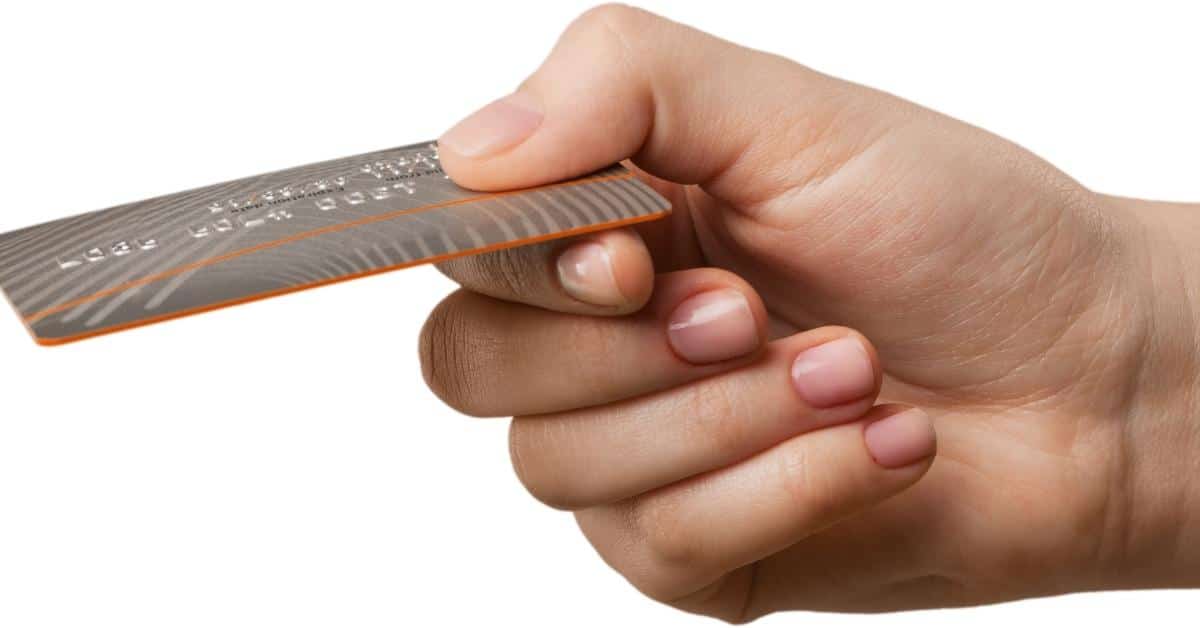
The first step is to talk to the relative or trusted friend that you are hoping will add you as an individual authorized to use their account. You'll want this person to have good credit and practice healthy credit habits.
Before going through the trouble of being given authorized user status on a card, make sure the credit card issuer will report authorized users to the credit bureaus. In some cases, people with authorized user status don't have their information sent to the credit reporting agencies.
If they agree, they can contact the credit issuer to set you up with authorized user status. It's worth noting that not all card companies will report authorized users' activity to the credit bureaus. To make sure you can actually benefit from being an authorized user, ask the main cardholder to verify this information with the bank.
Usually, only the primary account holder will receive the bill and is the one solely responsible for making payments. If they don't pay their bills on time, this can negatively impact both of your credit scores.
The last thing you want is for there to be any confusion about who's paying for what. If you're planning on using available credit each month with the card, make sure you talk to the original cardholder about if and how you will pay them back. Check with them to see if they have autopay set up or otherwise have a secure payment plan in place.
I can't stress enough just how important it is to communicate clearly with the primary cardholder. If there is any uncertainty about how much you can spend each month or how you'll deal with repayment, you'll want to have a conversation about these things ASAP.
An authorized user doesn't actually have to use the card to receive the benefits to their credit profile. In some cases, the primary account holder might be more comfortable if you don't have access to their credit limit. Whatever arrangement you agree to, make sure there is a clear understanding between the two of you to ensure this process doesn't strain your relationship.
As we've discussed above, becoming an authorized user in itself won't necessarily increase your credit score. Here are some things to keep in mind to ensure that adding the account to your credit report is a positive move for your financial well-being:
Usually, the primary account holder will give you access to their credit limit when you're added as an authorized user. It's important to have a conversation with the original cardholder about how much you will spend each month and honor the agreement you've made with them. If you rack up a big balance on the card, it could mean they start accruing interest on the account or struggle to pay the bill on time. This is obviously undesirable for a number of reasons, including the fact that it could negatively impact your credit.
Whether you're responsible for paying part of the bill or the primary account holder is the one making the payment, it's essential that the bill for the account is paid on time every month. Even one or two missed payments can ding your credit score.
You can check your credit report for free using AnnualCreditReport.com. This is a site created by the three major credit bureaus and authorized by Federal law.
The new account won't show up right away-- how long it takes for it to appear depends on when the credit card issuer reports to the bureaus.
Check your report regularly to keep an eye out for any errors or inaccuracies to ensure your credit profile is in tip-top shape.
Being an authorized user can be a useful tool for building your credit profile. At the same time, there are risks involved that you'll want to know about before making a decision. Let's check in with both the benefits and drawbacks to help you make an informed choice.

Is it really worth becoming an authorized user? The answer depends on your own credit profile and a number of other factors.
In general, though, the most substantial benefits of being an authorized user are:
Becoming an authorized user isn't always a good idea. Beyond that, it can be a big decision for the primary account holder to decide to add someone else to their account.
Let's look at some of the cons of becoming an authorized user or allowing someone to be an authorized user on a credit card.
Finally, let's take a look at some of the most common questions I receive about using authorized user status to build credit.
When you're trying to figure out how to build credit, you may have also come across the term "co-signer." Co-signers and authorized users aren't the same thing, but they both are useful tools you can use to help you start your credit history when your credit profile is thin.
Here are some of the primary differences between these two options:
When you become an authorized user, you're being added to an existing account. When you apply for a loan with a co-signer, you're requested to open a brand new account in your own name. The co-signer is "signing on" to say that they will foot the bill if you don't pay up.
Another concept that is similar to that of an authorized user is the joint account.

Joint account holders have more responsibility than authorized users. When you open a joint account with someone else, you are legally responsible for repaying the debt.
It's more difficult to be approved as a joint account holder than as someone authorized to use another person's count. The process will be basically identical to the one you'll go through if you apply for a card on your own.
Joint accounts are most frequently used by spouses that combine their finances. Authorized user status, on the other hand, is more common as a way for parents that are trying to help their kids build credit.
After reading through this guide, you might feel like this isn't the best choice as a credit-building method. Whether you don't want to risk screwing up a relationship over credit card payments or you don't know anyone trustworthy enough to ask, you'll be glad to know there are some other options on the table.

If your primary goal is building your credit score, consider these alternatives:
When someone you know and trust adds you as an authorized user on their account, it can help you build credit so long as they are responsible for a borrower-- aka paying their bill on time and keeping a low balance. Attaching yourself to another person's credit card account can potentially create relationship issues if you don't set clear ground rules and communicate openly. So long as you are able to reach an agreement that you are both comfortable with, though, becoming an authorized user can be a great way to add positive information to your credit profile.
The state of your credit can have a big impact on your life-- impacting everything from which house you can buy or apartment you can rent to the interest rates you pay on your credit cards.
For more information about how you can increase your credit score and clean up your credit report, check out our Credit Building Tips blog!
If you've recently been approved for a credit card and your credit limit is $300, you might be wondering how much you should spend.
The first answer is never to spend more than you can afford to pay back! The second answer, though, has to do with maintaining a healthy (aka low) credit utilization ratio.
 One factor that influences your credit score is your credit utilization ratio, which compares how much credit you're using to how much you have in total. Using the general advice that you should keep your utilization at 30% or lower, you'll want to spend no more than $90 on a $300 limit card.
One factor that influences your credit score is your credit utilization ratio, which compares how much credit you're using to how much you have in total. Using the general advice that you should keep your utilization at 30% or lower, you'll want to spend no more than $90 on a $300 limit card.At the same time, many different factors might make you decide to spend more or less than this amount. Let's look at what you should know about credit limits and utilization to help you decide how much to spend.
If you have a $300 credit limit on your credit account, how much should you spend if you want to maintain a good credit score?

Credit experts generally advise that you should keep your credit utilization ratio at 30% or lower.
Your credit utilization ratio is a percentage that represents how much money you're using on your credit accounts compared to how much credit has been extended to you.
However, if you want to have immaculate credit, some suggest that you keep your credit utilization ratio in the single digits.
The total amount of money you are authorized to charge to a credit account by a credit card issuer is your credit limit.
Both new purchases and balance transfers are included in your credit limit. On top of that, any other transactions- that draw from your credit line-- like cash advances-- are also included.
If you have an annual fee for your credit card, this will also be charged against your credit limit.
There are three primary ways that a credit card issuer will determine your credit limit.
There are some credit cards that come with a certain credit limit when you first open the account.
For example:
On the other end of the spectrum, a starter credit card might come with a $300 or $500 credit limit.
With this type of card, the credit limit isn't really a personalized decision. The issuer will look at your credit to determine whether to issue you the card, but they won't usually use your score to decide a precise credit limit for your account.
For most credit cards, your credit score will be used to determine your credit card limit.
This means that the factors that influence your credit score will impact your credit limit, including:
Other factors that credit card companies will incorporate when deciding on your limit include:
The process of determining your credit limit based on your credit score is similar to how credit card companies determine the interest rate they will offer you. Some credit cards will have a range of credit limits, and people with lower credit scores will be given a credit limit on the lower range, while people with higher credit scores will be given a credit limit on the higher range.
In some situations, credit card issuers might create a customized credit limit for consumers. This is a way for companies to minimize risk when they are giving applicants access to new lines of credit.
Some issuers will consider your debt-to-income ratio or income when determining your customized score. Others will use a grid system to compare a number of different scores associated with your financial history.
The most important thing when it comes to figuring out how much to spend on your credit card is ensuring that you only spend what you can afford.
Though it's not a disaster to carry a small balance on your credit cards, you will be paying interest if you don't pay off your balance in full every month (unless it's a promotional 0% APR card with an introductory period.)
Charging more purchases to your account than you can afford is a risky game, as it makes you very vulnerable to spiraling debt. Being buried in credit card debt is something you'll want to avoid at all costs, if at all possible.
If you need your credit score to be in tip-top shape, you'll want to keep your credit utilization ratio at 30% or lower. This means that whatever your credit limit is, you can multiply it by 0.3.
The maximum balance you should carry on your card at any given time is the result.
Your credit limit is simply the amount of money that a credit card issuer is extending to you on a particular account.
A higher credit limit can help you achieve a lower credit utilization ratio if you practice responsible credit usage. On the other hand, having a lower credit limit can ensure you don't spend more than you can afford to repay.
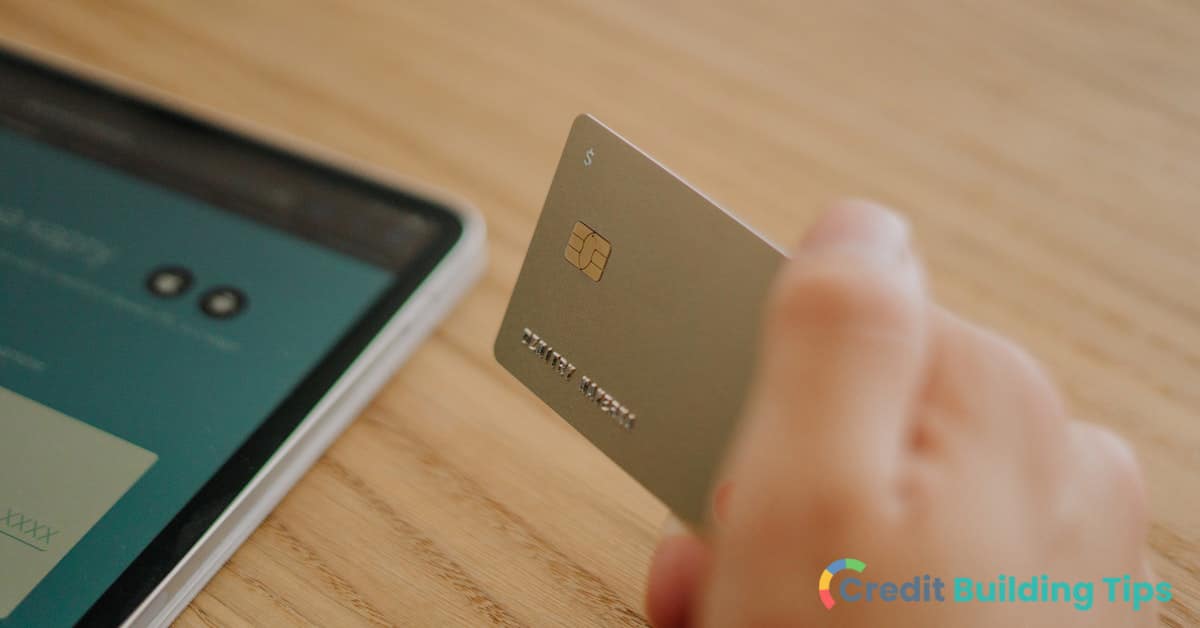
According to data from TransUnion, the average credit card limit is around $13,000. However, consumers usually need to have little to no existing debt and a high income to achieve a credit card limit this high. The average American has, in total, access to a little more than $30,000 via their credit limits.
If you got a new credit card to help with your credit score and are disappointed with the low limit, it's worth understanding that using the account responsibly is the thing that will help your credit the most. After your account has been open for a specific number of months (this number will depend on your issuer) you can also request a credit limit increase.
Your available credit is different from your credit limit. Your available credit is how much credit you have left after your balance is subtracted from your credit limit.
For example:
If you pay off your entire balance in full, your available credit will reset back to your credit limit.
Having a higher credit limit comes with some benefits and drawbacks. If you recently opened a new card and you are unhappy with the limit being too low, you can request a credit limit increase. For new cards, though, you'll probably need to wait a certain number of months before the issuer will raise your limit.
Some of the pros of having a higher credit limit include:
On the other hand, having a higher credit limit can have some downsides:
If you decide that you want to ask for a higher credit limit, there are a few avenues you can take:
Even if you're frustrated that your credit limit is $300 and not more, it's important to remember that everyone has to begin their credit-building journey somewhere!
If your limit is $300, you'll likely want to spend 30% or less of your credit limit to maintain a good credit score. In the case of a $300 limit, this means $90 or less. At the same time, how much you spend will depend on several other factors that are unique to your situation. And, you don't want to forget the most important question to ask yourself when deciding how much of your credit limit to use-- how much can you afford to pay back?
Managing a credit card account responsibly-- no matter how low the credit limit-- will help you improve your credit over time. Whether you have a thin credit profile or you're trying to increase your less-than-ideal score, it's worth investing time and energy into building your credit with responsible credit use.
Are you on a journey to improve your credit so you can have access to better financial opportunities? If so, make sure you check out the rest of our Credit Building blog!
The accounts that are listed on your credit report are referred to as "tradelines." The two most common types of tradelines that you will see on your report are revolving credit accounts (such as credit cards or other lines of credit) and installment credit accounts (such as mortgages or auto loans.)
If you don't have enough tradelines on your credit report, it can put you in the "thin credit profile" category or even make you "unscorable," meaning that you don't have a credit score. Even if you don't fall into one of these two categories, there are numerous benefits to adding new positive tradelines to your report.
 There are three primary ways to add a tradeline to your credit report: opening a new account, adding an existing account, or utilizing a service that lets you add utility or rent payments.
There are three primary ways to add a tradeline to your credit report: opening a new account, adding an existing account, or utilizing a service that lets you add utility or rent payments.Let's take a look at all of the most important details you will want to know about adding tradelines to your credit report.
Tradelines, in short, are the accounts that appear on your credit report. The two most common types of tradelines for individuals are:

If you have any debts that have been sold to collection agencies, you will probably also see these appear as separate tradelines on your credit reports.
The tradelines on your report are important because they directly impact your credit scores. They are an essential part of your credit history. The information found in your tradelines-- including the length of your credit history and your payment history-- will be used to calculate your credit scores.
To learn more about tradelines, check out our article about how long tradelines stay on your credit report.
There are a number of reasons you might want to add a tradeline to your credit report, including:
There are three primary ways you can add tradelines to your credit report:
The first way you can add a tradeline to your report is by opening a new account. This might mean applying for an unsecured credit card, a secured credit card, or a loan. I've personally used installment loans in the past, for example, to help my own credit score and credit file.
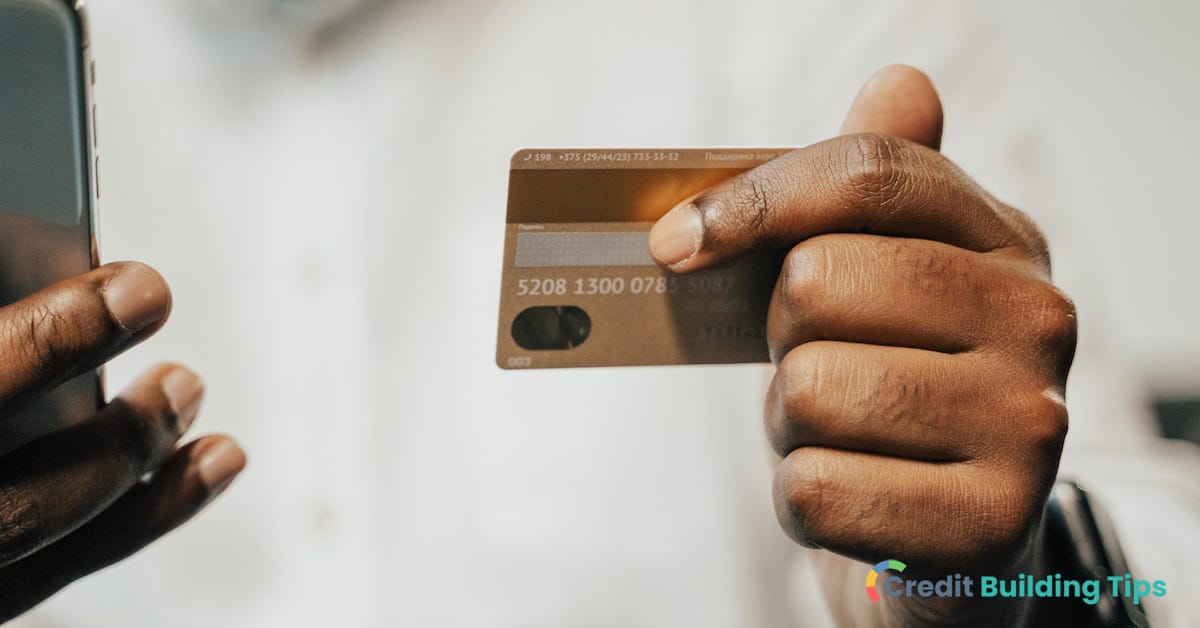
If you have reasonable credit, the most obvious option is to apply for a traditional credit product, such as a credit card from a lender, a credit account through department stores and merchants, or a personal loan.
However, if you find yourself in a situation where you will struggle to qualify for a traditional product, you could also apply for a secured credit card.
Secured credit cards require a security deposit that will equal the credit limit you are offered. Since you are borrowing against your own deposit, it is much easier to be approved for a secured credit card than an unsecured credit card.
Of course, you'll want to be thoughtful when applying to borrow money-- the whole plan could backfire if you end up digging yourself into debt. Adding tradelines to your credit report will ultimately only be favorable to your credit score and creditworthiness if you are able to make on-time payments and otherwise prove that you are a responsible borrower.
You don't necessarily have to apply for a new credit card or loan in order to add a tradeline to your credit report.
You might also:
Perhaps one of the easiest ways to add another tradeline to your credit report is to ask someone you are close with if they would be willing to add you as an authorized user to one of their accounts.
If a parent, relative, or close friend is willing to add you as an authorized user, it will add the tradeline to your credit report. This will allow you to benefit from the positive payment history, credit history length of your account, and additional available credit of this account.
Before asking to be added as an authorized user on someone else's account, you'll want to make sure that their credit history is excellent and their income is stable. Otherwise, it could end up backfiring and harming your credit rather than helping.
For what it's worth, it is possible to be added as an authorized user but not be given access to actually using the available credit. This can help put the other party's mind at ease, as they will know there is no risk of the arrangement damaging their credit.
One way you can add your utility accounts to your credit report is through a program like Experian Boost, which we will discuss a little later on in the article.
However, you can also contact your utility companies directly and ask them if they would be willing to report your information to the credit bureaus. Of course, you will only want to do this if you have a positive payment history, and adding the tradeline will benefit your credit file.
There is no guarantee that your utility companies will comply, but it also isn't uncommon. There is no harm in asking, and if they say yes, it could help improve your credit report and credit score.
Creditors almost always report your account information to the three major credit bureaus (Experian, Equifax, and TransUnion.) However, it is possible that some of your creditors do not report to all three of the bureaus, and some in-store accounts might not report to any of the bureaus.
For example, let's say that you purchased an expensive appliance using an installment loan through a retailer. If you are making payments for it regularly and on time, you might be able to ask the retailer to report your information to the credit bureaus. When you communicate with them, make sure you ask them to report your information to all of the credit bureaus.
Before we start telling you why Experian Boost can help you add tradelines to your credit report, it's worth understanding that you will be required to share your accounts and banking information in order to use this service. It's entirely up to you whether you feel comfortable with this, and Experian states that they don't store consumer credentials and use world-class encryption in order to ensure that your data remains secure.
What is Experian Boost, exactly, and how can it add tradelines to your credit file?
Basically, Experian Boost is a credit-building tool that will allow you to raise your FICO score instantaneously. The way it works is that you can add accounts that have positive payment histories, such as phone bills, utility bills, and even streaming service payments.
You will need to link your bank account and any other accounts that you use to pay your bills. From there, Experian Boost can use the information regarding your on-time payments to add tradelines to your report and increase your score.
There are a few alternatives to Experian Boost that are worth knowing about, including eCredable Lift and Perch.
One of the benefits of eCredable Lift is that there is a wider selection of utility providers to choose from, while Perch lets you add your on-time rent payments to your credit report.
When your credit history has too few tradelines, it can mean that you have a "thin credit file" or that you're "unscorable." Both of these can be obstacles to having a healthy credit score.
If you have less than three tradelines, it means that you have a "thin credit file."
Even if you have at least three tradelines, there can still be additional benefits to adding more tradelines to your credit report.
You can benefit from adding tradelines to your credit report in a number of ways, including:
Positive tradelines (like well-managed loans or credit cards) can help to increase your credit score. When your credit report clearly shows that you have been making payments on time and demonstrating responsible credit usage, it can have a positive impact on your score.
If you are able to add a tradeline to your credit report that has a high credit limit and a good payment history, it can increase your creditworthiness.
Creditworthiness is the extent to which an individual or company is determined to be suitable to receive financial credit. It is typically based on their history of reliably repaying debts in the past.
The more creditworthy you seem to lenders and credit card companies, the easier it will be to receive approval when you apply for loans or new cards.
If you are able to add an existing tradeline to your credit report that is older than your oldest account, it can help to expand your credit history. The length of your credit history is one of the factors taken into account when calculating your credit score.
Lenders like to know that you have experience with several types of tradelines when applying for a loan. You can help increase your creditworthiness and maybe even your credit score by adding a tradeline from a different type of account.
For example, if you only have credit card tradelines on your credit report, you might consider getting an installment loan to diversify your credit profile.
To learn more about using installment loans to improve your credit, check out our ultimate guide to payment and installment plans.
If you have a strong credit profile with positive tradelines, it can help you receive lower interest rates and more favorable terms on both credit cards and loans.
Over your lifetime, you could save tens of thousands of dollars if you were able to receive the most favorable rates and terms when you borrow money. According to Experian, taking out a 30-year fixed-rate mortgage with an interest rate of 4.3% with a 700 credit score would cost you $16,319 more over the life of the loan than if you had a credit score of 760.
If you are able to add a tradeline with a high credit limit, it means that your overall available credit can increase significantly. This results in a lower credit utilization rate, which is one of the factors taken into consideration when calculating your credit score.
Your credit utilization ratio represents the amount of revolving credit that you are currently using divided by the amount of total credit that you have access to. Credit utilization ratios are typically expressed as a percentage and should ideally be below 30%. When it comes to credit utilization ratios, lower is always better.
When you add a new tradeline to your credit report and make on-time payments consistently, it allows you to build a positive payment history. Lenders will look closely at your payment history when determining whether or not to extend a loan or line of credit to you, as they want to know how likely you are to pay them back on time.
Payment history is a crucial factor in determining your credit score. In FICO scoring models, your payment history accounts for 35% of your score. Even one 30-day late payment can result in a decreased credit score.
Are you thinking about taking out a loan to buy a home or a car? Were you considering applying for a personal loan to consolidate your credit card debt?
No matter what type of loan you're applying for, adding a positive tradeline can help your chances of being approved. The same goes for applying for credit cards, as creditors want to see that you have experience managing credit responsibly.
If you have a less-than-ideal credit score, you aren't alone. According to LendingTree, 42% of Americans were denied a financial product (such as a personal loan or a credit card) due to their credit score between June 2021 and June 2022.
There are a number of things you can do to help build your credit when there are negative items on your credit report, including adding positive tradelines. When you are able to add tradelines in good standing to your report, it can offset the negative impact of less desirable items and help you in your quest to demonstrate creditworthiness to lenders.
Having good credit can open up new financial opportunities to you, and one of the ways you can improve your credit is by adding positive tradelines. Beyond getting the best rates and terms for credit cards and loans, an excellent credit score can help you qualify for rental applications, obtain favorable insurance rates, and secure lower security deposits.
When you research adding tradelines to your credit report, you will come across numerous articles claiming that you can simply buy tradelines that will then be added to your credit report.
It isn't difficult to find companies that sell tradelines for a fee, which can be expensive indeed (some prices stretch up into the thousands of dollars.) If you utilize one of these services, a tradeline will usually be added to your report for a brief period before it is removed as an open account.
Whether you have a thin credit profile or your credit report isn't the shining example of responsible borrowing that you hope it would be, adding positive tradelines can benefit your credit file and your credit score.
There are, luckily, a number of different ways that you can add new tradelines to your report, including opening a new account, adding an existing account, or using a service like Experian Boost.
Considering that there are a number of avenues you can take to add tradelines to your report, it really isn't worth going the route of buying tradelines from a potentially predatory company. Not only can this be expensive, but lenders and credit bureaus can see it as deceptive, and it can even put you at risk of committing bank fraud.
Building your credit the right way can take time, but it's worth going about it through the proper methods. Otherwise, you could end up harming your credit more than you help it.
If you're interested in discovering more tips for improving your credit, make sure you check out our Credit Building Tips blog.
Knowing how to build credit when you have no credit history is something everyone needs to know. Unfortunately, many Americans do not know how to build a positive credit history or do not think about it until they need to use their credit.
Not having a credit history when you need to rent an apartment or want to buy a car or home is extremely frustrating. So, we created a guide to help you build credit, even if you have no previous history.
In it, you will learn how long it takes to establish credit, how to review your credit profile, how to build credit, what a good credit score is, and much more!
Three major credit bureaus, Experian, Transunion, and Equifax, all report consumer credit usage. Banks use FICO, which analyzes all three credit bureaus and issues different scores using the information.
FICO offers scores in different areas, some of which consider the overall scores from all three bureaus and others that provide separate FICO scores for each bureau. There are also FICO scores for bank cards, car loans, home loans, and other types of credit, and each lender may use a different FICO score to determine a consumer's ability to repay loans.
Your scores may vary significantly depending on the information available from each bureau. That is because all lenders do not report to each credit bureau. The information each lender uses to determine whether a borrower is trustworthy also varies depending on the lender's protocols and the type of loan you want.
Established credit is a history of credit usage. Initially, you may have one or two scores but lack a FICO 8 score which is what most lenders look at when they decide whether to lend to you. Usually, you need at least six to twelve months of credit history or more to generate a FICO 8 score, and you typically need a mix of credit accounts to generate this score.
Even if you have had a credit history previously, you may have no history now if you have not used credit in a long time. So, having no credit history is not an issue specific to new credit users.
Building a credit profile can be stressful when you have not used credit in a long time. You do not want to do anything to impact your credit negatively. However, you have to use credit to get a score.
When a bank looks at your credit profile and sees that you have not used credit, they are less likely to lend to you than if they see that you have a 'thin credit profile.'
A lender may also tell you that you have no credit history even after using credit if you apply for a new credit type. For example, FICO gives lenders several different scores based on each credit bureau's data. Some FICO scores available to lenders include auto, home, and credit card scores.
When you are starting to build a credit history, you will have a lower score even if you are properly managing your credit.
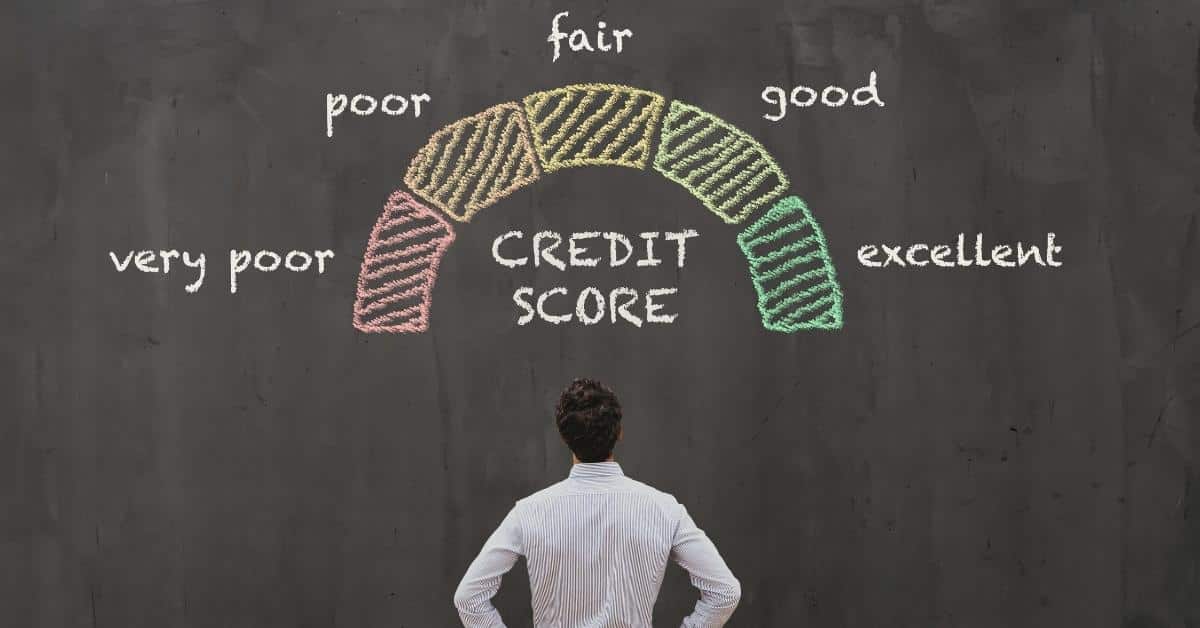
The credit scoring models consider many factors, like:
So, it takes time to build a high score. Score ratings also differ depending on the type you are looking at. For example, Vantage scores ratings are as follows:
FICO score ratings are similar, but they do differ some, as you can see below:
Before you start using credit, you may not have a score. You can also have a score on one bureau and lack a score on the others.
While you may think it would be better to have no credit than bad credit, lenders prefer that you have some credit because they can better tell if you will repay your loan.
Credit allows you to buy things and pay for them over time. When you have bad credit, some lenders will not loan you money. Those who do charge higher interest rates, and that isn't the only compelling reason to have good credit.
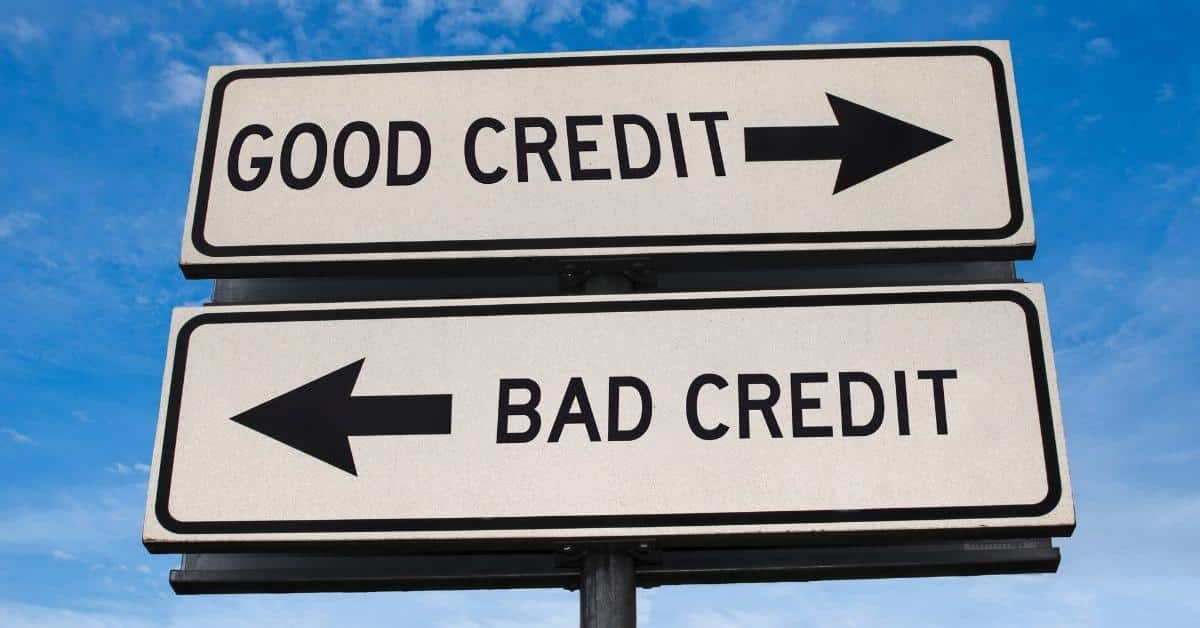
That means it costs you more to make large purchases than someone with positive credit. Just a slight increase in the interest rates of your loans can make a huge difference. The better your credit is, the more likely lenders will give you a reasonable interest rate on loans. Many lenders even offer interest-free loans if you have good credit.
The ability to borrow money at low or no interest helps you save money. You can save thousands of dollars over the life of a loan with a low-interest rate. You will pay thousands of dollars more to borrow the same amount at a high rate.
Many employers check credit reports when you apply for a job. In some fields, your credit may not impact you significantly. However, companies are more critical of your credit profile if you plan to get a job in banking, finance, real estate, or other industries where you handle a lot of money.
If you are not paying your bills on time, you must submit written reasons for each late payment. These organizations view employees with late payments as higher -risk. These company policies follow the theory that an employee in debt is more likely to steal if they are put in a position to do so.
Insurance companies usually check your credit when you request an insurance quote. The better your credit is, the lower the rates they offer.
If you have bad credit, utility companies usually require large initial deposits. Some of the companies that may require an initial deposit include:
Not having credit can prevent you from getting approved for housing. Apartment complexes and landlords check your credit before they approve you. If you do not have credit, the landlord may deny your application or require you to pay an extra deposit, or have a co-signer guarantee your lease.
Before you start trying to build credit, you need to review your credit report. Even if you do not think you have used credit, you may have something on your credit report. So, the first thing you need to do is check your report.
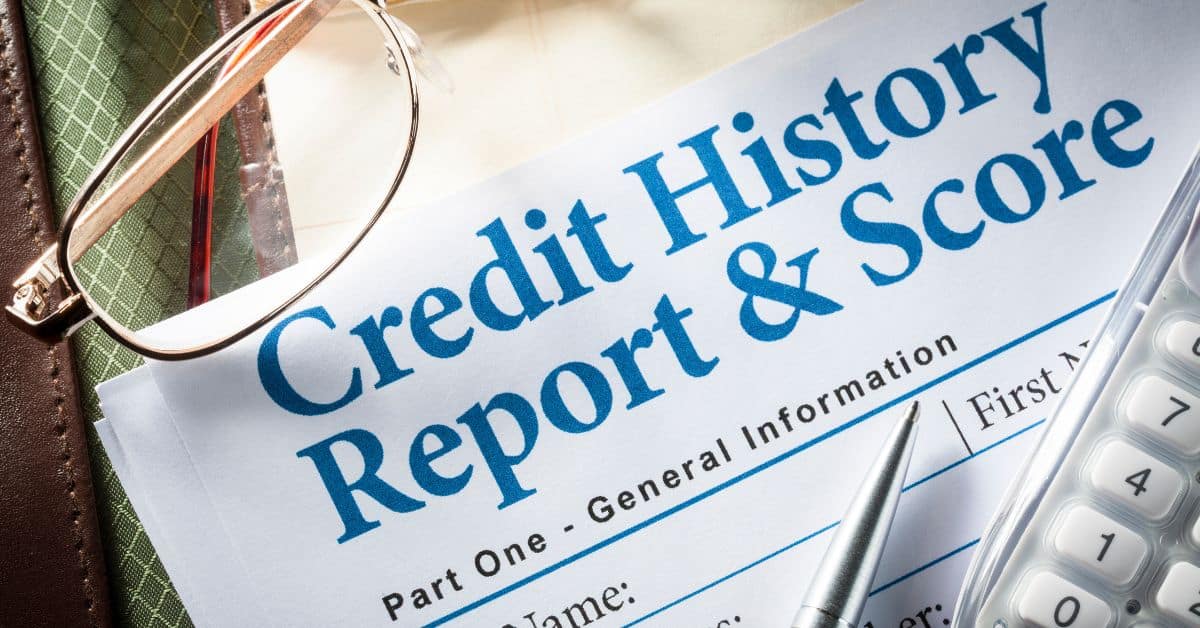
There are several free sites that you can use to receive a free credit report, like annualcreditreport.com. You can also signup for free credit-building apps that give you access to Vantage scores. Vantage scores are similar to your FICO score but usually slightly off.
It is also possible for you to have a Vantage score and not a FICO score.
There are a few initial steps you can take to build credit. Where you start depends on your specific situation.
If your family has good credit, you can ask to be added as an authorized user on one of their credit cards. However, you will want to make sure that if you do this, you choose someone who has good credit and is responsible for using it because their credit usage for the card you are authorized to use will appear on your credit report.
One of the easiest ways to start using credit is to apply for a secured credit card. Most major banks offer these cards, which work just like a traditional credit card but require an initial down payment.
Store cards are sometimes easier to get. However, you want to be very careful with store cards. These cards are not reported to the credit bureau the same way as traditional credit cards.
So, it is crucial to pay these cards off as you use them. Many store cards do not report your credit limit. They only report your high balance. So, if you have a $5,000 limit and charge $500, the high balance will be $500 until you pay it off.
The card issuer may not report that you have a $5,000 limit. So, when a lender pulls your credit report, it appears that you have a $500 credit limit.
There are ways that you can have your rental payments reported to the credit bureaus. One way is to sign up for Experian Boost. Then, pay your landlord through Zelle. After a few months, the payments should appear in the Experian Boost feature.
You can add them to boost your credit score along with other bills like your:
It can be even more challenging if you are still living at home because you do not have bills in your name. However, you can put a few bills in your name to start building credit.
Even bills like cable, internet, cell phones, and even Netflix help to give you some credit history.
You build good credit over time. There are different ways to start building credit. However, a well-rounded credit profile consists of different account types, accounts that have been open for years, and a substantial credit payment history.

The longevity of accounts is vital if you want to achieve an excellent credit rating. In fact, it is the only way.
You need to have some accounts that you keep active for a long time. You also need to make sure that you do not close any credit cards you have had for many years, as your credit score will take an immediate hit that may take months or years to recover.
The threat of closed accounts harming your scores prompts many credit advisors to instruct clients to keep credit balances on their cards. It is not a bad practice and prevents issuers from closing your accounts due to inactivity. However, when you first learn how to build credit, do not worry too much about banks closing your cards due to inactivity.
Having one line of credit may give you a score. However, it may take a long time to establish credit that way. Banks want to see a mix of account types in your credit profile.
So, it is a good idea to have a few credit cards, at least two to three. With a few major credit cards, a couple of utility bills, and an auto loan or rental payments reported, you will have an excellent account mix that should give you a score in all areas.
Your payment history is extremely important, especially for the past 24 months. So, you want to make all payments on time.
Your payment history makes up the most significant portion of your score, impacting your credit for the most time. For example, you can pay down cards and raise your credit score within a month or two.
However, if you have late or missed loan or credit card payments, they will significantly impact your score for at least 24 months. Even a few late payments can bring your score down considerably for years.
Having credit and not using it will not get you far with lenders. They want to see that you can manage using credit. So, keeping a small balance on cards is a good idea.
However, if you have trouble managing a small balance, you can pay your cards off each month. Another thing you need to be mindful of is the amount you charge on your cards.
Banks want to see that you use your credit, but not too much. Even if you pay your bill monthly, charging your credit cards to the maximum allowed will negatively affect your credit scores.
Banks often report your payment on time but take a week or more to report the correct card balance. If you charge $500 on a card with a $750 credit limit, your bank may report the card as current if you make a payment, but they may not report the decrease in your extended credit. So, if you apply for credit, the bank would see that you owe $500 out of your total credit of $750, which doesn't look good to lenders.
You need to have accounts open for years to achieve excellent credit. One way to overcome the longevity of accounts required for achieving a higher credit score is to be added as an authorized user to an account with a long history.
You need to leave your credit accounts open when you start using your credit. Banks will often close accounts that are not actively used. So, making frequent purchases with your cards or leaving a small balance is a good idea.
You can start establishing credit within a few months if you open a couple of secured cards and other bills in your name. If you want to buy a home, having an auto loan or rental payments reported to the major credit bureaus will also help.
You can plan for it to take between 12 and 24 months to build enough credit to get favorable rates on significant purchases.
Building credit is vital, and missing even one payment can affect your score for years. So, it helps to have a few tips from a trusted credit education source to ensure you are correctly managing your credit.

Many people get in a rush to build their credit and over-extend themselves. It is easy to use credit when you have it. You do not want to start your life with substantial debt, though. So, it is best to add credit to your profile slowly. Practice managing each credit account responsibly before you add another.
When you start using credit cards, learning how to pay your payments on time is crucial. Being over diligent is better than dealing with the long-term effect of slow payments.
Your total consumer debt, including auto payments, should not exceed ten percent of your annual salary.
Building positive credit takes n and responsibility. Letting someone else use your credit or co-sign for them can impact you for years. So, be extremely careful when you use your credit to help anyone.
Credit scoring models can be challenging to understand. There are numerous things credit scoring models factor. To better understand how credit works, look at the answers to these frequently asked questions by people trying to build their credit.
Lenders often offer students credit cards that they do not offer to people with similar credit profiles who are not in school. There is nothing wrong with using a student credit card to build credit. However, you need to be very careful with these cards as they often have higher limits, and it can be tempting to use them when you are a student living on a strict budget.
Paying off credit cards with high balances can be challenging for a student. You may have good intentions and want to make credit card payments on time, but if you do not have enough income, your credit card bill will likely take a backseat to other essential expenses like your phone bill or groceries. So, it is best not to overspend even if you have the ability.
Some people may tell you it does not hurt your credit to pay your cards off monthly. However, charging your cards to their limit will lower your score even if you pay your cards off each month. Creditors also like to see that you can manage to have some debt, so many experts will advise you to keep a small balance, under 30 percent, on your credit cards.
If it makes a difference in making payments on time or forgetting to make credit card payments, it is better to pay your accounts off than leave a balance. Even a late payment on an insignificant balance can considerably impact your score.
The easiest way to establish credit is to have someone add you to their account as an authorized user. You need to be careful when you do that, though.
When you are added as an authorized user, the card issuer will report account activity on your credit report and the original card owner's. If you are irresponsible with the card, the family member or friend will suffer, and if either of you fails to make payments on time, it will reflect poorly on your credit report.
The five Cs of credit are character, capacity, capital, collateral, and conditions. These are the factors lenders consider when deciding how much credit and terms they are willing to lend to you.
Credit is not the only thing banks consider when determining whether or not they will lend you money. In addition to your credit score and history, banks look at your income and employment history.
Lenders also look at your debt-to-income ratio. Banks will not approve you if you have a lot of credit extended, and you can only show a portion of your income. If you are self-employed, lenders want to see additional documentation before they give you a loan. The additional information you may need to provide could include additional tax returns, bank statements, and proof of income.
If you are self-employed, you must also show that you have had the same income source for two consecutive years.
Understanding how to build credit is essential if you want to enjoy low-interest rates and have the ability to finance the purchase of a home or car on credit. Following these credit-building tips will help you create a positive payment history and maintain it, so you can achieve an excellent credit rating.
A prepaid credit card might be convenient for paying bills if you do not have a bank account. However:
 Prepaid credit cards do not help to build credit because the issuers do not report to credit bureaus.
Prepaid credit cards do not help to build credit because the issuers do not report to credit bureaus.If you currently use a prepaid card to manage your finances, some alternatives, like a secured credit card, can help you build credit. Managing credit can be confusing for first-time credit users and individuals who lack a score due to a brief history.
So, we created a guide to help. In it, you will learn how prepaid cards work, what alternatives you can use to establish your credit history, and how to manage accounts that report to credit agencies.
 Prepaid credit cards do not report to credit bureaus. When you are learning how to manage credit, this can be a good thing. However, when trying to build credit, you need your card issuer to report your card usage and payments.
Prepaid credit cards do not report to credit bureaus. When you are learning how to manage credit, this can be a good thing. However, when trying to build credit, you need your card issuer to report your card usage and payments.Issuers do not report to the reporting agencies because they are not extending you any credit. You are using your funds the same way you would if you had them deposited into a traditional bank account.
Prepaid cards can be beneficial if you do not have a bank account.
So, if you are short a few dollars, the merchant will decline your transaction. That is because prepaid credit cards are more like debit or check cards. They even allow you to directly deposit funds into the prepaid account using a payroll direct deposit enrollment form. The form lists the routing and account number of your prepaid card and gives payroll companies the information they need to deposit your funds correctly.
Prepaid credit cards are helpful when you do not have a bank account. They are easy to purchase, and you can use them to purchase most things you would use a debit or credit card to buy.
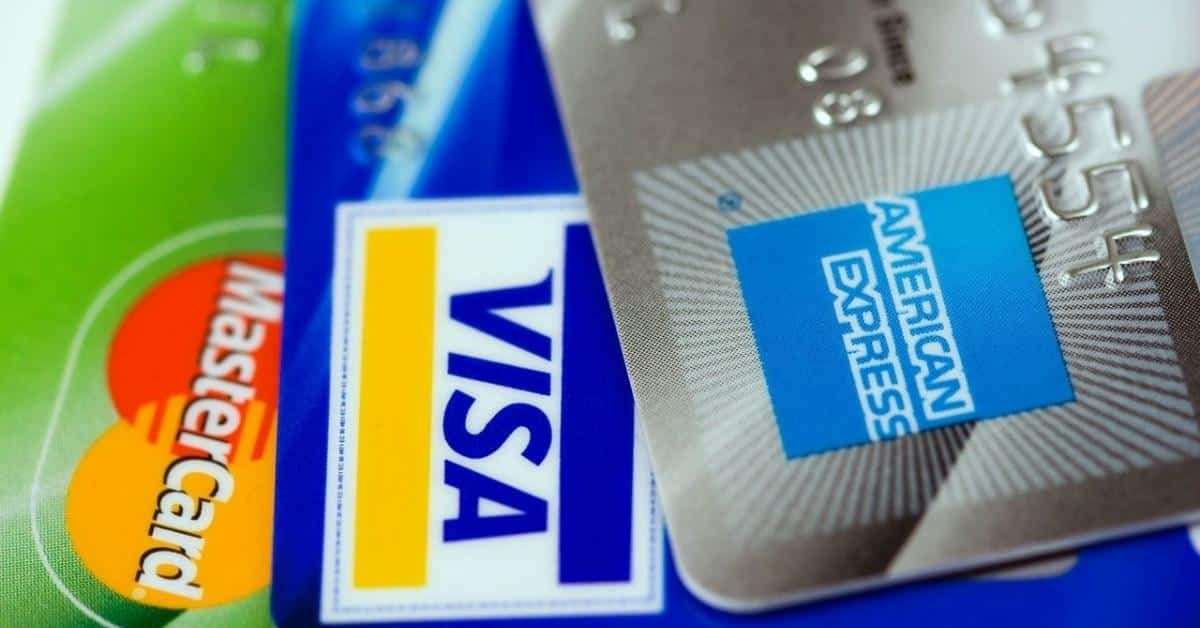
Then, you can use the card to pay for your purchase when you have enough. It is a convenient way to pay for things. However, it is not like a credit card. Prepaid cards are more like a checking account.
You can think of prepaid cards more like debit cards. You can only spend what you have in the account. Prepaid card issuers do not issue you credit or report any 'credit' activity.
If you do not have a bank account or owe a bank, you can use a prepaid credit card to pay many bills. However, prepaid cards do not allow you to complete some purchases that major credit cards allow.
Prepaid cards have some limitations that typical credit cards do not have.
Some of the purchases you might not be able to make with a prepaid card include:
The restrictions may make it challenging to pay for some items as these cards do not work like major credit cards.
Secured credit cards are similar to prepaid cards in that you pay an initial payment to open the card. Unlike a prepaid card, the initial payment for a secured card is like a security deposit, which is why banks call them secured cards.
With your security deposit, the bank will extend you credit. After the initial security deposit payment, your secured card works just like any other major credit card. There are even cards that offer cash back and travel rewards, and you can use a secured credit card to book rental cars, pay bills, and buy things online.
Each month, the card issuer sends you a bill with the total amount owed on the card and the minimum payment. You must pay at least the minimum payment to keep the account current. If you miss a payment, the card issuer will report the late payment to the credit bureaus.
However, they also report all of your on-time payments, which helps you to build your credit history. Periodically, the bank will review your card history and credit report to determine if you are eligible for credit increases. If your credit history is positive, the issuer may also return your security deposit and transition your card to an unsecured account.
You can get a secured credit card through most banks. Typically they require a payment of around 75 percent of the card limit. The credit limits available depend on the issuer and your credit history. However, there are secured cards with limits as high as $5,000.
Several credit building applications offer a virtual secured credit card. You pay a security deposit, and they issue you a secure credit card that you can use for online and in-store purchases if the merchant has a tap-to-pay card reader.
Virtual secured cards work just like having a physical card. They report to the credit bureaus. You just do not have a physical card.
When you deposit money on a prepaid card, you do not have to pay the money back. You load more money when you need to use the card. It does not adversely affect your credit score if you cannot load money on the card for a while.
When you use a secured credit card, the issuer reports to the credit bureaus. You have to use them like you would any other major credit card.
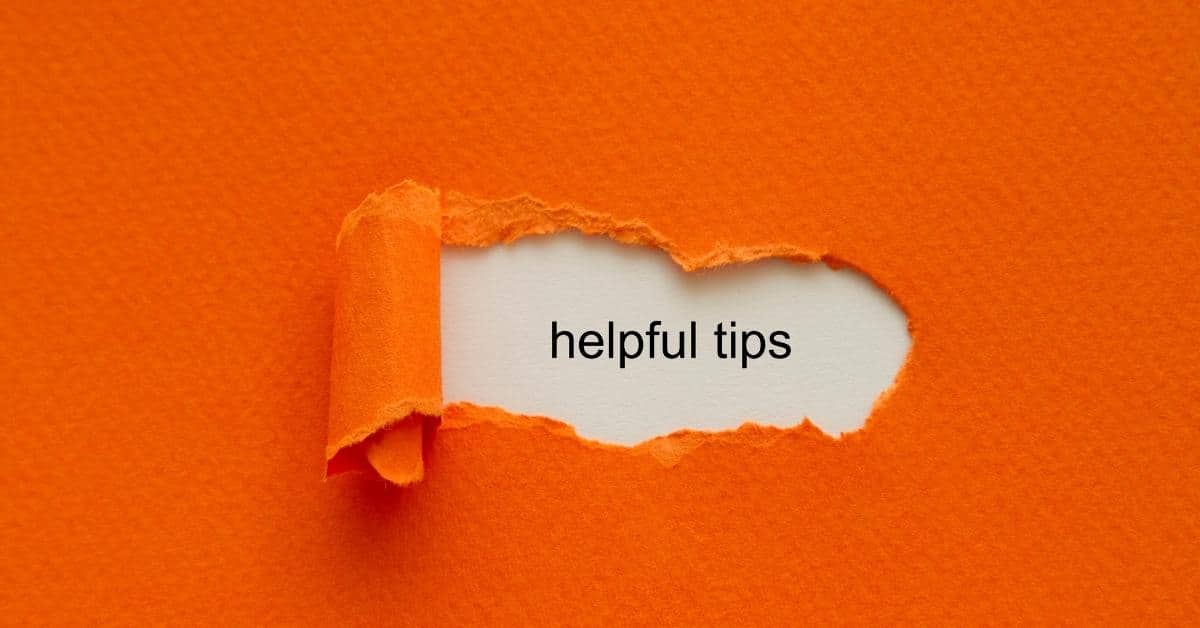
It sounds like getting a secured card is a great way to build your credit, and it is, but you first need to make sure that you can pay back purchases. If you are strapped for cash, paying a credit card payment can be challenging.
If you are unfamiliar with using credit and need money, it can be easy to charge something and worry about how to pay it later. However, even a small purchase can negatively impact your credit if you do not have the cash flow to pay it off.
Your method for keeping track of your monthly finances depends on your personal preferences. If you are good at managing things online, you should set up auto-pay.
You can usually make payments through your account application if you get a secured card through your bank. Your credit card balance and due dates will also appear under your list of accounts, making it easy to make payments and manage your credit card balance.
You can likely apply for a secured card through your bank if you have a bank account. Setting up a relationship that includes several accounts of different types with a single bank is a good idea. It helps establish a long-term banking relationship and makes it easier to go to your bank for loans even if you do not have a substantial credit history.
Your bank will look at your complete history over time when considering you for loans. Plus, you can speak to your banker about different options for building your credit.
Part of learning to build credit is learning good financial habits. If you only use your card to make planned purchases, it is easier to create healthy spending habits. It is easier said than done. However, with diligence, you can learn how to spend responsibly.
You should always treat credit purchases the same as cash. If it would put you behind financially to spend your money on a purchase, you should not use credit to buy it.
Many people think that credit cards are there to purchase things you want and pay them off over time, which can be used for that. However, you always want to ensure you have the money to pay off credit card purchases before you spend.
If you make purchases on a secured card that you plan to pay off over time, at the very least, you need to factor the monthly minimum payments into your budget. Then, wait until you pay off the purchase before you make another.
When you keep a high balance on your credit cards, it reflects poorly on your credit score. It can reduce your credit score by 50 to 100 points. Even if you make your payments on time, having a high card balance will negatively impact your score.
Many people use credit cards to earn travel points or cashback. If you do, pay the card down to below 30 percent of the monthly limit. Otherwise, your credit report will show that you have high credit usage, and your score will go down.
You need to keep a balance or use your cards regularly if you want the bank to keep them open. Otherwise, the issuer may close your card and return your initial security deposit.
When a bank closes one of your accounts, it can lower your credit score, especially if it is one of your oldest accounts.
You will want to keep your secured card open for a long time to build a high credit score. Closing the account will lower your credit score significantly once you have had it open for some time.
So, you want to ensure you do not have to pay an annual fee to keep your account active. Many secured cards offer no annual fee.
Cards issued by central banks are great for building your credit. However, there are many options out there that offer little credit and charge high fees.
Just because you have little or no credit does not mean you should subject yourself to predatory lenders. You pay a deposit when you open a secured card, so you give the bank money before you spend any of yours.
Do not be so eager to build your credit that you give your money to the wrong bank. The best cards are usually the ones issued by central banks.
If you do your banking at a national financial institute, consider applying for a secured card through your bank.
Getting a secured card is not the only way to build your credit. There are many other ways that you can earn a good credit score.
Store cards can be easier to qualify for if you have no credit. However, store cards can be harder to manage.
You must make sure you pay down the balance on store cards quickly. Most issuers of department store cards do not report your card limit. They convey your high balance.
If you pay the minimum payment of $50 on a $500 purchase for a card with a limit of $5,000, a lender pulling your credit will not know that you have only used ten percent of your card. Instead, you will appear to have a $450 balance on a card with a $500 limit.
Having someone add you as an authorized user to their card can help you build your credit profile. However, you have to be careful about who adds you as an authorized user.
Once added to someone's card, their payment history reflects on your credit profile. The card owner may have other positive accounts to counteract a few late payments, but when you are building your credit, even one or two slow payments will significantly impact your credit score.
Furthermore, you must use the card wisely. Otherwise, it will impact both your (and the card owner's) credit negatively. Do not use the card if you cannot make payments on time. Have your friend or family member hold on to this card.
Experian allows you to add utility bills, rent payments, cable and internet payments, and even monthly subscription services to your credit report. If you lack an Experian score, taking advantage of this feature could give you a credit score.
To receive credit for paying these bills, you need a national bank account that connects to the Experian site. Once you add your bank account, the Experian Boost app will scan for bills you can add.
You then have the option of choosing the bills you want to report. You can also remove them later. However, removing your bank account or specific bills may negatively impact your score.
If you have been using a prepaid card as an alternative to a bank account for paying monthly bills, you will have to open an account at a central bank before using the Boost feature through Experian.
If you are a student, you can likely get an unsecured credit card. Banks often issue student credit cards to college students. So, this may be a good option if you are going to school. Just be mindful of your spending, as these cards often have higher initial limits.
Conn's accounts are beneficial for building credit. When you buy with Conn's financing, you apply for a specific amount to cover that particular purchase. If you are approved, Conn's will open a retail installment account for you. It is similar to an auto loan. You have terms that you must adhere to that specify the monthly payment amount and date.
You can pay the purchase back and apply for other purchases, but you do not have an open credit card. If you do not qualify for Conn's in-house financing, they may refer you to other lenders who work with borrowers who have not had as much time to build their credit and people trying to rebuild.
Auto loans can help you build credit, and if you have a stable job, they are sometimes easier to get than an unsecured credit card. While you need a mix of accounts to build a strong credit profile, if you take out an auto loan and pay your payments on time each month, it will go a long way toward helping you build positive credit.
Furthermore, auto loans are categorized differently from credit cards in credit models. So, if you want to get approved for a mortgage, auto loans are considered a better indicator of your ability to repay a home loan.
Opening a bank account will not directly impact your credit profile. However, it will make applying for some types of credit more accessible. It can also help you to add bills you regularly pay to your credit profile through the Experian Boost feature. When opening a bank account, make sure to use a national bank. That way, you will have access to free ATMs across the country, and you can connect your account to Experian Boost.
When you open a bank account, your bank will issue you a debit card which you can use like a prepaid credit card to pay bills and make purchases in stores and online.
Now that you know the difference between prepaid and secured credit cards, let's read the answers to some frequently asked questions. They are highly informative and may help you better understand the limits of prepaid credit cards.
When you load money onto a prepaid debit card, accessing the funds via an ATM can be challenging. These cards give people without a credit card the ability to make credit card purchases, but they make it more difficult to pay bills at times. Another disadvantage of prepaid credit cards is that they do not report your payment history to the credit bureaus.
If you set up your prepaid card, you should be able to use it to complete debit and credit card payments. If you want to use it as a debit card, you will enter the pin you selected when you set up your account. If you use the card as credit, you will have to sign for the purchase on a printed receipt or the pin pad.
While you can choose the credit option for in-store purchases, you are not able to make some purchases you would be able to make with a major credit card. For example, many hotels will not let you use a prepaid card to rent a hotel room. You may also be unable to pay for gas at the pump, rent a car, or pay some utilities with a prepaid card.
According to Experian, one of the major credit bureaus, leaving a small balance on your cards does not positively impact your credit. Leaving a small balance can help prevent account closures that can negatively impact your average age of accounts. However, it is best to ensure that your credit payments are on time.
If carrying a balance causes you to miss payments, it is not worth leaving a balance on your cards. Furthermore, if you use your credit cards frequently, the card issuer should not close your account without first notifying you.
The most important thing to remember about prepaid cards is that they do not help to build your credit score. Instead, if you want to build credit, you can start with a secured card. It works like a traditional credit card, except you must make an initial deposit before the bank opens the account or issues the card.
You can also open a bank account and use your debit card to make everyday purchases. Opening a secured card and bank account at the same bank will make it easy for you to pay your monthly credit card payments on time, which is essential to building a favorable credit profile.